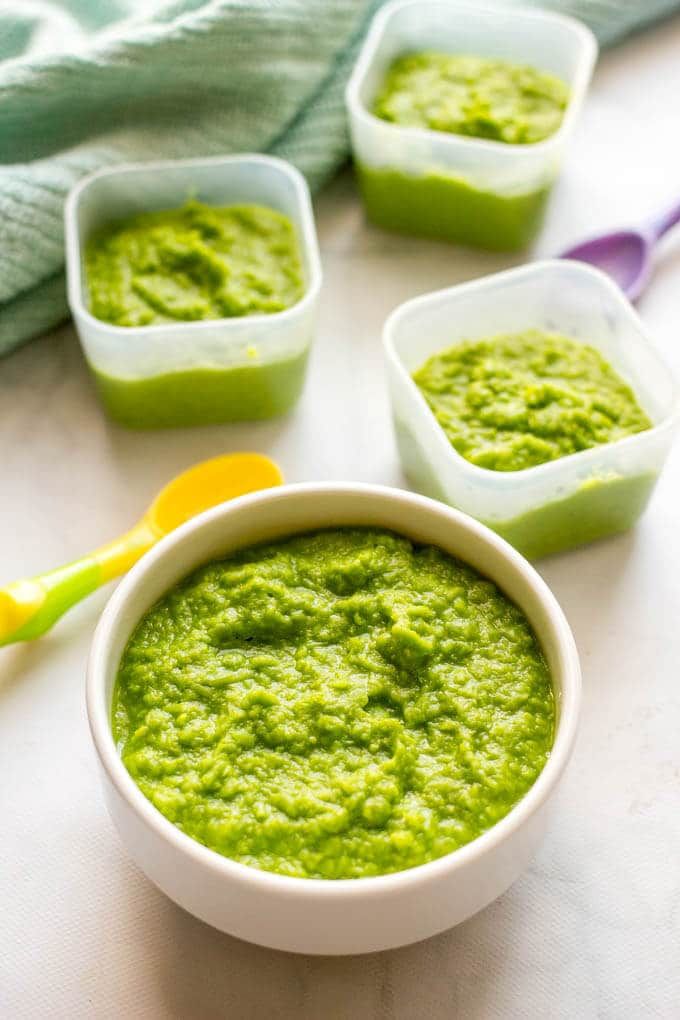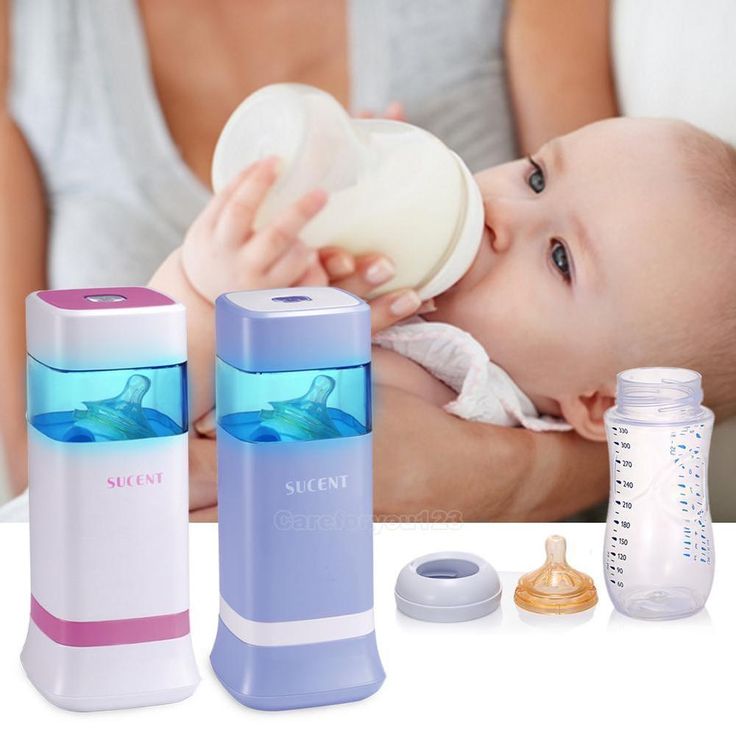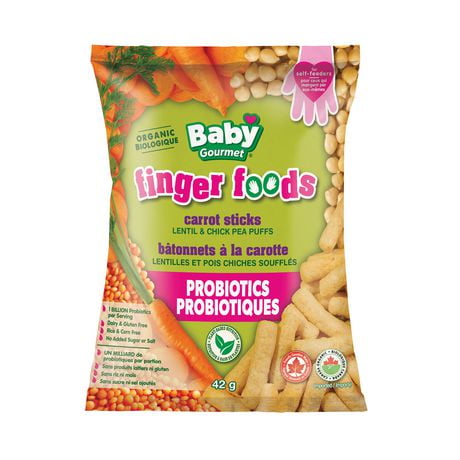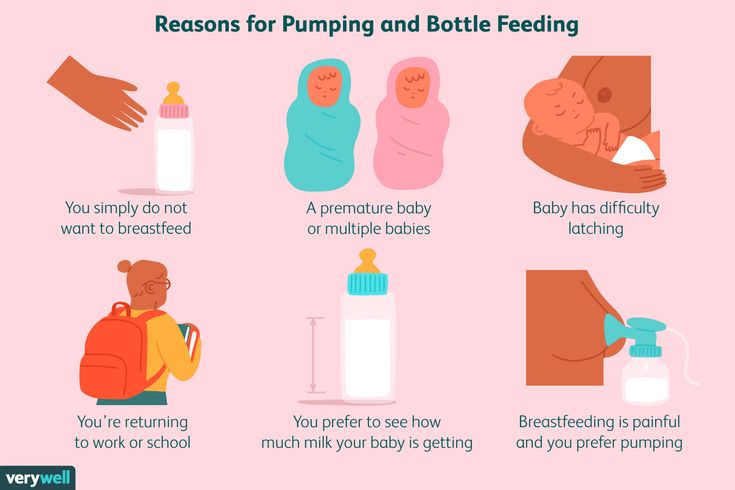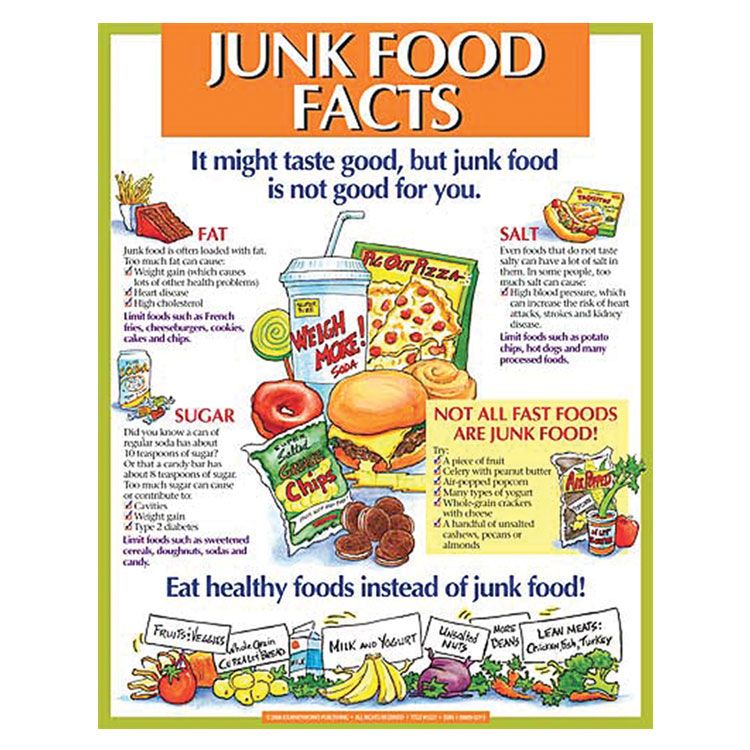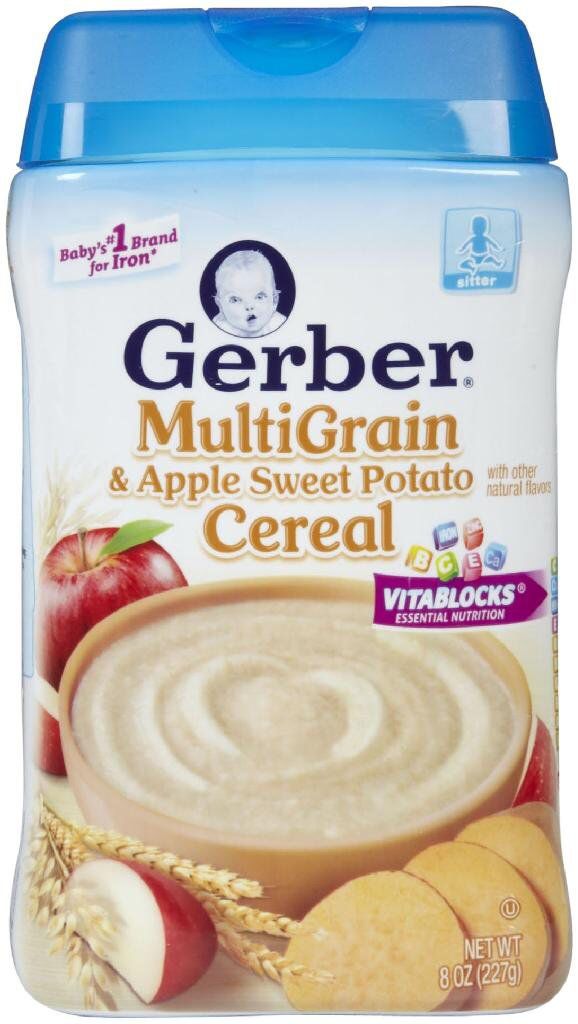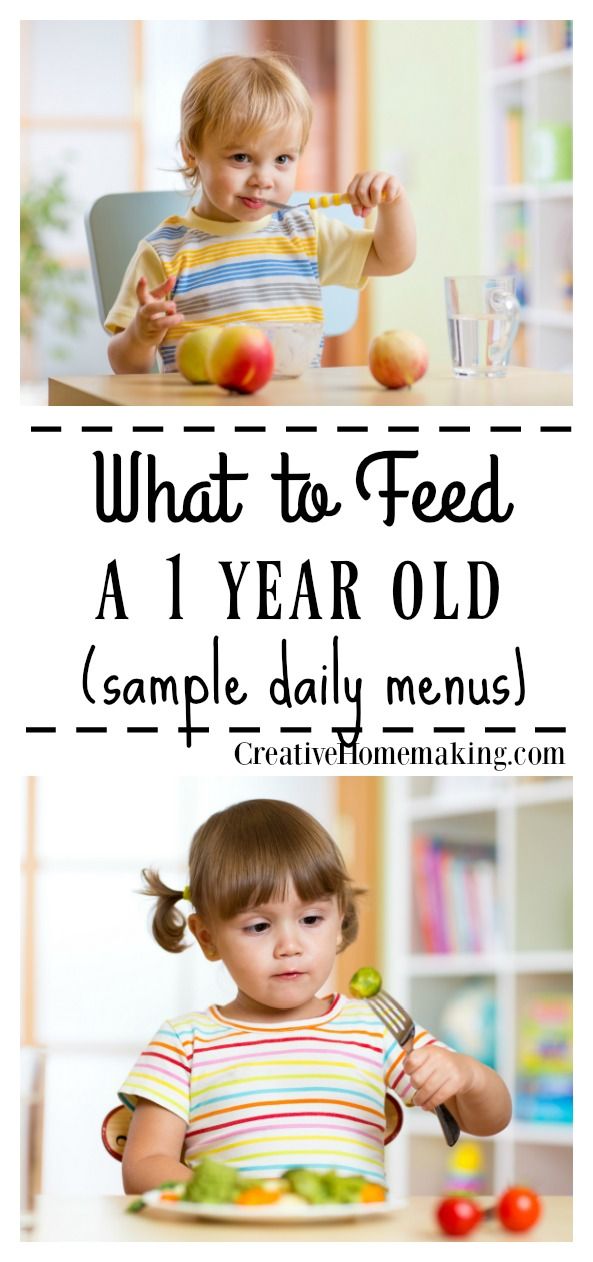Is gerber food good for babies
Beech-Nut Vs. Gerber: Which Baby Food Brand Is Better?
Overview
As many as 90% of parents in the US may turn to commercial baby foods for children below three years old. The baby food industry is expected to reach over $76 billion in sales in 2021 alone. (1)
Beech-Nut and Gerber are among the most popular baby food brands you can easily buy from grocery stores. Both offer a variety of flavors and may be good options as your baby’s first solid food.
But which is the best baby food brand for your little one? What products do they offer? Do they use organic ingredients with no preservatives? Do they have toxic metal content?
Continue reading to find answers to these questions below.
Beech-Nut and Gerber: Similarities & Differences
Main Similarities
- Both baby food brands are readily available in most grocery stores.
- Both offer a variety of flavors for different stages of your baby’s development.
- Both may be good options as your baby’s first solid food.
- Both have been producing baby food for decades: Gerber since 1927 and Beech-Nut since 1931.
- Both claim to do extensive research and regular tests on their products to ensure quality and safety for your baby.
- Both are Non-GMO Project Verified. It means that both brands produce baby foods without GMOs (genetically modified organisms). GMOs may cause antibiotic resistance, allergic reactions, reduced immune system function, and cancer. (2)
- Both use BPA-free packaging. BPA (bisphenol-A) is a toxic industrial chemical used in plastic production. (3)
- Both brands may also have products with high levels of toxic heavy metals, based on tests conducted by Consumer Reports and HBBF (Healthy Babies Bright Futures). (1)(4)
- Both were called out in the 2021 Congressional Reports for their heavy metal content. They provided the Subcommittee with their test results and internal standards. But their results show high levels of heavy metals in ingredients and/or finished products.
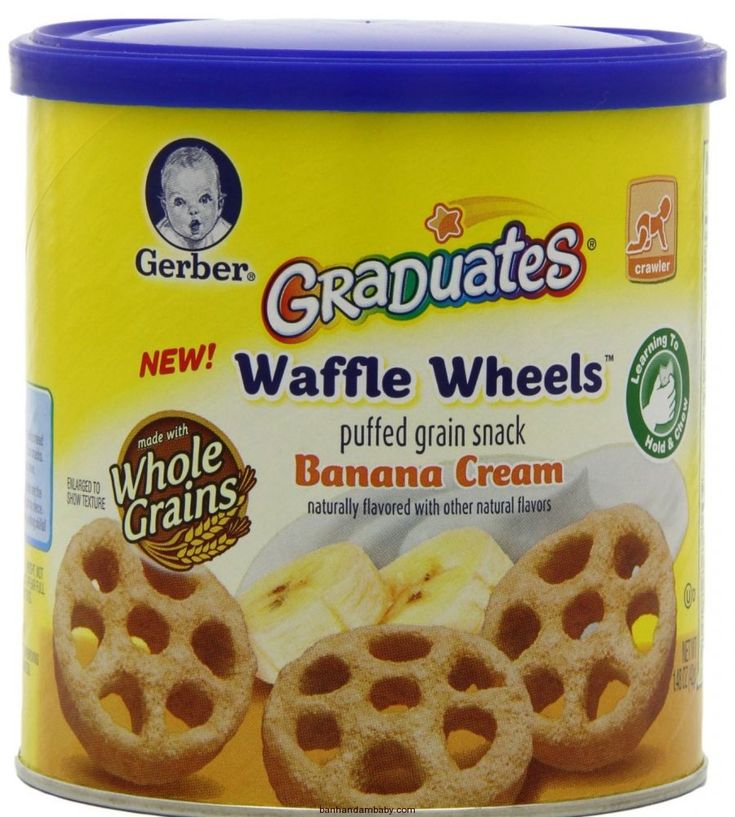 (5)(6)
(5)(6) - But both also claim that their products are safe and within the FDA’s limits.
Here’s part of Gerber’s statement:
“100% of our foods meet all FDA requirements for our products and our own strict standards. We developed these standards based on the very latest health and safety guidance from organizations like the Food and Drug Administration, Environmental Protection Agency, the European Food Safety Authority and the World Health Organization.
In fact, we have among the strictest standards in the world.”
Beech-Nut also assures customers that their products are safe:
“Our foods are and have been below the proposed FDA arsenic limit for rice cereals.
Even the highest quality, organic and non-GMO fruits and vegetables contain trace amounts of lead because this contaminant commonly occurs naturally in soil.”
Main Differences
Is Beech-Nut Brand Good For Babies?
- The brand claims that they use infinitely-recyclable glass jars to reduce their carbon footprint.
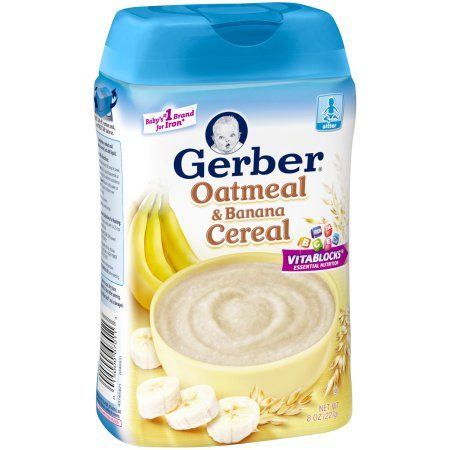
- The brand also claims to produce “real food” with no artificial ingredients.
- Its Organics line is certified USDA organic.
- The brand claims that it tests for 255 pesticides, toxins, and heavy metals.
- None of their products contain soy allergens.
- Beech-Nut has eliminated salt and sugars in most of its products since 1977, except for foods that “require sweetening to balance natural acids.” (7)
What Makes Gerber Better
- The brand offers various products for kids up to preschool age, including multivitamins and probiotic supplements.
- The brand has a subscription service for its organic line at $69.99 per month or around $1 to $2 per meal. These baby foods are delivered to your doorstep.
- The brand also has products for pregnant moms and infant formulas.
- Both brands test their products, but Gerber claims they have a panel of 2,000 babies or “tiny taste testers” who help ensure that their foods taste good.
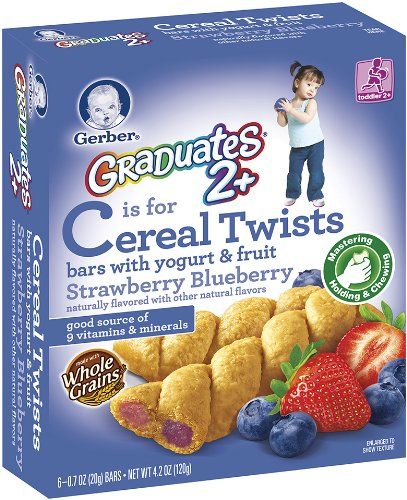
- Gerber is also part of FITS (Feeding Infants and Toddlers Study), an ongoing research to understand children’s diets and behaviors since 2002.
- The brand claims that its products go through over 100 individual quality checks.
Beech-Nut Baby Foods
Products Offered
Beech-Nut offers a variety of foods that can suit your baby’s nutritional needs when you start weaning them.
You can follow the feeding suggestions by choosing foods from the 4+ Months line if you’re feeding your baby for the first time.
But make sure to ask for your pediatrician‘s advice if you’re planning on giving solid foods to a kid less than six months old.
4+ Months
- Infant cereal canisters
- Classics (single-ingredient pureed baby food jars with broth)
- Naturals (single-ingredient pureed baby food jars)
- Organics (single-ingredient pureed organic baby food jars and cereal canisters)
Flavors can include the following:
- Multigrain cereal canister
- Naturals Sweet Potato Jar
- Organics Pumpkin Jar
Beech-Nut discontinued its rice cereal product line in 2021 after expressing concern about its ability to consistently obtain rice flour that passes the FDA requirements for toxic heavy metal content.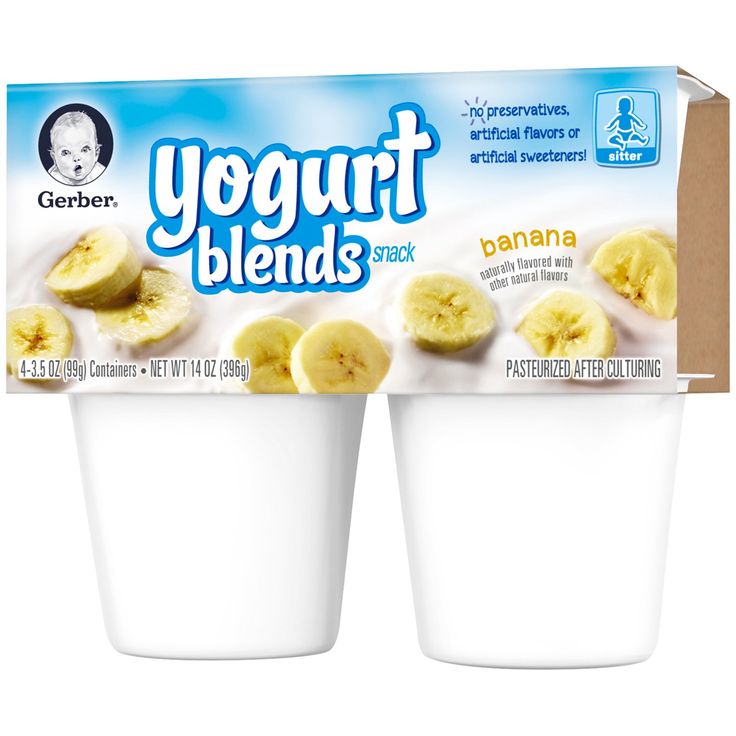 (8)
(8)
6+ Months
- Infant cereal canisters
- Classics (multi-ingredient pureed baby food jars with broth)
- Naturals (multi-ingredient pureed baby food jars)
- Organics (multi-ingredient pureed baby food jars and cereal canisters)
- Fruities (pureed baby food in a pouch)
- Naturals Pouch (pureed baby food in a pouch)
Flavors can include:
- Harvest Dinners Chicken, Pear, & Zucchini Jar
- Apple, Pear, & Banana Jar
- Naturals Banana, Blueberries, & Green Beans Jar
- Carrot, Zucchini, & Pear Veggies Pouch
8+ Months
- Baby Food Jars
- Baby Food Pouches
- Melties (freeze-dried snacks with fruits, vegetables, and yogurt)
Flavors can include the following:
- Pear, Mango, Spinach, & Yogurt Melties With Probiotics
- Naturals Banana, Cinnamon, & Granola Pouch
- Naturals Carrots, Sweet Corn, & Pumpkin Jar
12+ Months
- Naturals Pouches
- Fruities Pouches
- Veggies Pouches
- Veggie Crisps
- Oat Bars
- Fruit & Veggie Bars
- Melties (freeze-dried snacks with fruits, vegetables, and yogurt)
Flavors can include:
- Apple, Carrot, Mango & Yogurt Melties With Probiotics
- Strawberry Fruity Oat Bars
- Sweet Potato Baked Veggie Crisps
Nutritional Values
The nutritional values differ among various baby food products.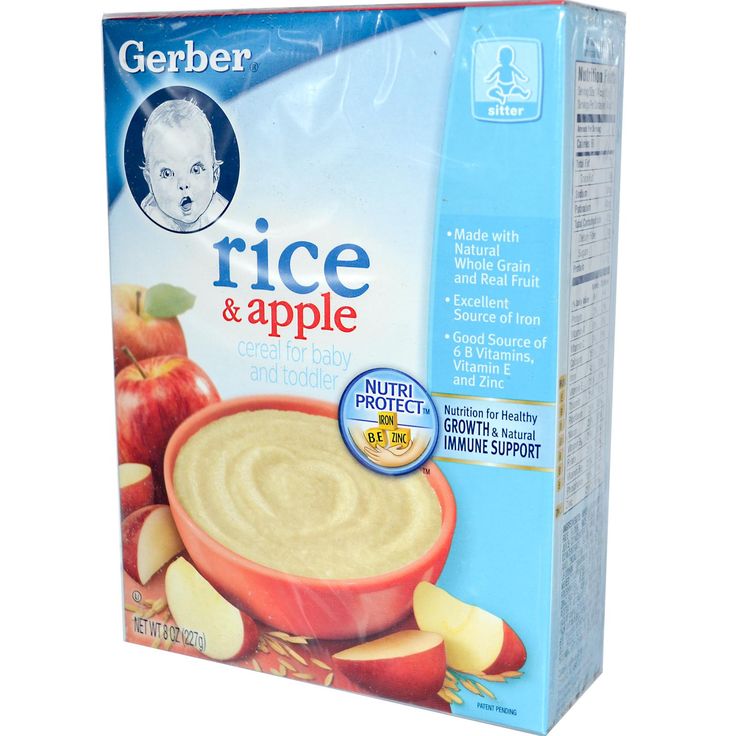 But here’s an example from one of Beech-Nut’s bestsellers on Amazon:
But here’s an example from one of Beech-Nut’s bestsellers on Amazon:
Naturals Butternut Squash Jar
Ingredients:
- Butternut squash
Nutrition Facts:
- Calories: 35 calories
- Sodium: 0 mg
- Fats: 0 g
- Carbohydrates: 8 g
- Total sugars: 3 g
- Added sugars: 0 g
- Fibers: 1 g
- Proteins: <1 g
- Calcium: 28 mg
- Iron: 1.1 mg
- Potassium:188 mg
Beech-Nut Recall
Beech-Nut Single Grain Rice Cereal Recall (2021)
Beech-Nut Single Grain Rice Cereal (universal product code# 52200034705) was recalled in June 2021 due to high arsenic content in tests conducted by the State of Alaska. (8)
The recall included the following product codes, with an expiration date code of “01MAY2022”: (8)
- 103470XXXX
- 093470XXXX
For return or refund processing, you can reach them through:
- www.
 beechnut.com/ricecereal
beechnut.com/ricecereal - 1-866-272-9417
Beech-Nut CLASSICS Sweet Potato & Chicken (2015)
Beech-Nut CLASSICS Sweet Potato & Chicken was recalled in April 2015 due to possible contamination with glass. (9)
Products with the following codes were called (all have an expiry date code of “DEC 2016”): (9)
- 12395750815
- 12395750821
For return or refund processing, you can do the following:
- Return the recalled product to the store
- Call (518) 839-0300
Gerber Baby Foods
Products Offered
Gerber offers a wide range of products, from infant formulas to preschoolers over 24 months old.
It may be ideal to start with the products for Supported Sitter (4-6 months) as your baby’s first food while weaning from breast milk or formula.
But make sure to ask for a pediatrician’s recommendation before giving solid foods to a baby below six months old.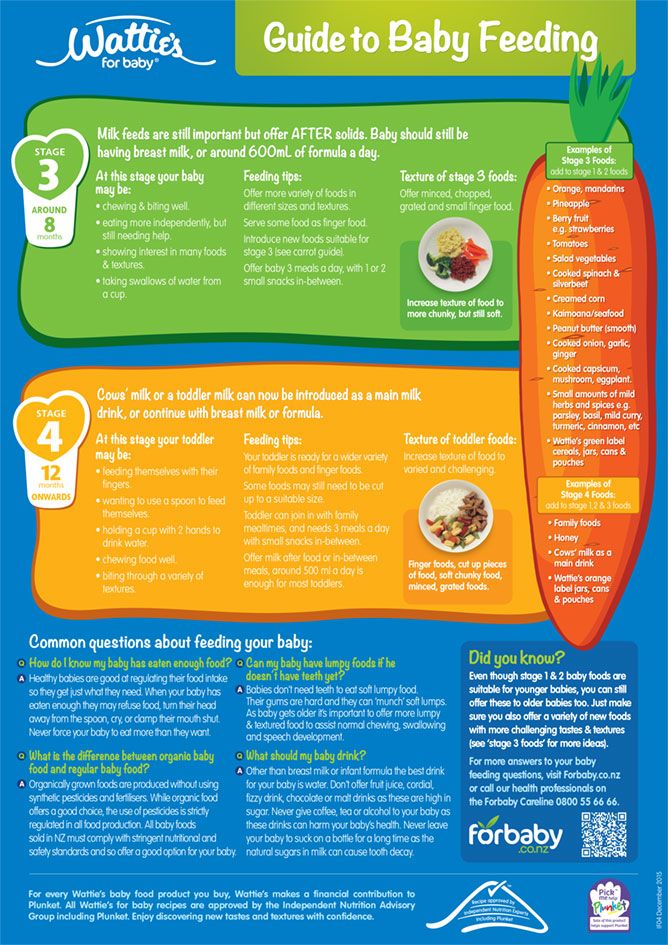
Supported Sitter (4-6 months)
- 1st Foods (single-ingredient puree in jars)
- My 1st Veggies (single-ingredient puree in jars)
- Single grain rice cereals
- Single grain oatmeal cereals
Flavors can include the following for the 1st Foods line:
- Butternut Squash
- Natural Apple
- Natural Green Bean
- Natural Sweet Potato
Sitter (6-8 months)
- 2nd Foods (multi-ingredient puree in jars)
- Incredipouch (multi-ingredient puree in a pouch)
- Multi-ingredient rice cereals
- Multi-ingredient oatmeal cereals
Flavors include the following for the 2nd Foods line:
- Mac & Cheese with Vegetable Dinner
- Turkey Rice Dinner
- Vanilla Custard Pudding with Banana
- Carrot Tomato & Basil with Balsamic Vinegar
Gerber used to offer Organic Whole Grain Brown Rice Cereal but has discontinued the product.
Crawler (8-12 months)
- Puffs (baked puffed snacks)
- Lil’ Crunchies baked (puffed snacks)
- Melts (freeze-dried fruit and vegetable snack)
- Whipped melts (freeze-dried fruit and egg white snack)
- Teethers (gentle teething wafers)
- Teether Wheels (wheel-shaped teething snacks)
- BabyPops (puffed snacks)
- Puffs To Go (cereal snacks)
- 3rd Foods (baby food jar)
- Grain & Grow Morning Bowl (multigrain cereal with fruits or veggies)
- Lil’ Bits (cereal with fruit bits)
- Yogurt Blends
Flavors can include the following:
- Very Berry Blend Fruit & Veggie Melts
- Strawberry Apple Puffs
- Veggie Dip Lil’ Crunchies
- Strawberry Apple Spinach Teethers
- Organic Banana Raspberry BabyPops
- 3rd Foods Pasta Marinara
Toddler (12+ months)
- Grain & Grow Soft Baked Grain Bars
- Oat Milk Smoothies
- Lil’ Crunchies
Flavors can include the following:
- Organic Lil’ Crunchies White Bean Hummus
- Organic Grain & Grow Soft Baked Grain Bars (Banana, Mango, and Pineapple flavor)
- Organic Banana, Squash, Mango, and Pineapple Smoothie
Other Products
The brand also offers the following:
- Probiotic and vitamin drops
- Probiotic supplements
- Multivitamins
Nutritional Values
The nutritional values vary among the different baby food products.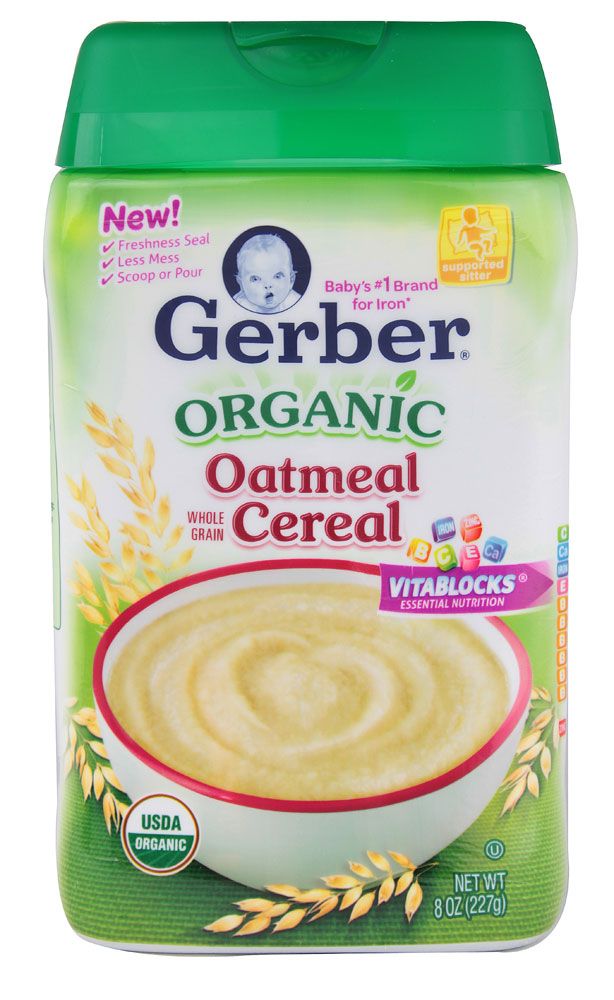 But here’s an example from one of Gerber’s bestsellers on Amazon:
But here’s an example from one of Gerber’s bestsellers on Amazon:
Gerber 2nd Foods Hawaiian Delight Dessert
Ingredients:
- Pineapple juice (water and pineapple juice concentrate)
- Fully ripened bananas
- White grape juice concentrate
- Rice flour
- Whey protein concentrate (from milk)
- Water
- Vitamin C (ascorbic acid)
Nutrition Facts:
- Calories: 120 calories
- Sodium: 50 mg
- Fats: 0 g
- Carbohydrates: 28 g
- Total sugars: 20 g
- Added sugars: 5 g
- Fibers: 0 g
- Proteins: 2 g
- Calcium: 21 mg
- Iron: 0.2 mg
- Potassium: 240 mg
- Vitamin C: 23 mg
Gerber Recall
Gerber Pasta Pick-Ups Cheese Ravioli (2017)
Gerber Pasta Pick-Ups Cheese Ravioli (universal product code #159070) were recalled in March 2017 for undeclared egg components (allergens) on the product label.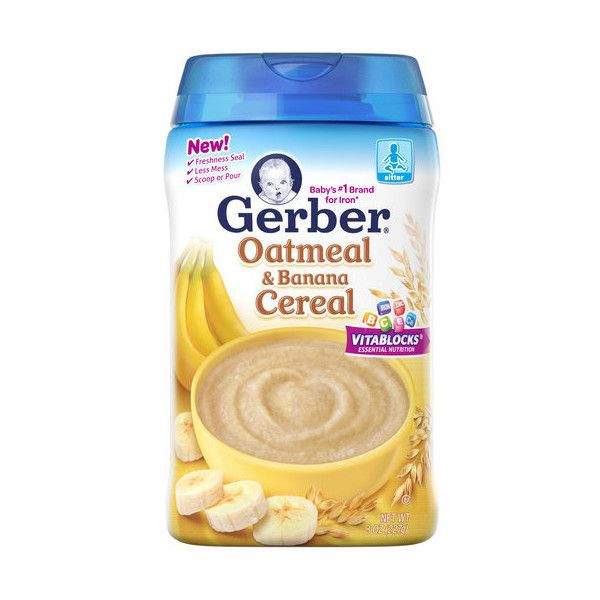 (10)
(10)
This recall affected all the batches/lots without the correct label.
For return or refund processing, you can call 1-800-510-7494.
Gerber Organic 2ND FOODS Pouches (2016)
Gerber Organic 2ND FOODS Pouches were recalled in March 2016 over packaging defects that may cause product spoilage during handling or transport. (11)
These products were affected: (11)
Carrots, Apples & Mangoes
- Batch 51955335XX, with best before date: July 13, 2016
- Batch 51965335XX, with best before date: July 14, 2016
Pears, Carrots & Peas
- Batch 51945335XX, with best before date: July 12, 2016
- Batch 51955335XX, with best before date: July 13, 2016
For return or refund processing, you can call 1-800-706-0556.
Congressional Report On Toxic Baby Foods
Which Baby Food Brands Are Toxic?
According to the Congressional Report released in February 2021, several popular baby food brands may have products with alarming levels of heavy metal content.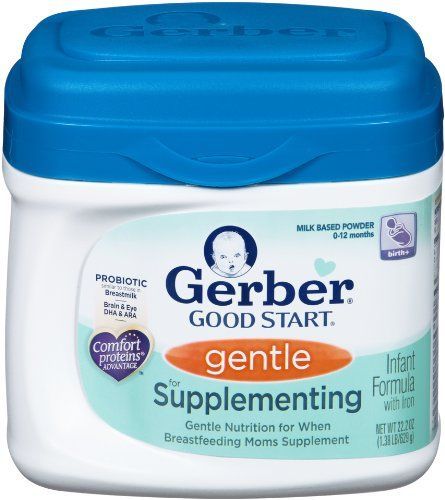 The brands are: (5)
The brands are: (5)
- Beech-Nut Nutrition Company (Beech-Nut)
- Gerber
- Nurture, Inc. (HappyBABY and HappyTOT)
- Hain Celestial Group, Inc. (Earth’s Best Organic)
- Campbell’s Plum Organics
- Walmart Inc. (Parent’s Choice)
- Sprout Foods, Inc. (Sprout Organic Foods)
Is Beechnut Baby Food Bad?
Beech-Nut declared that all its raw materials passed its internal standards. (5)
Yet, the company apparently set exponentially high internal maximum levels, so these ingredients actually failed the regulations. (5)
Here’s the FDA maximum limit for bottled water (in ppb or parts per billion): (12)
- 10 ppb inorganic arsenic
- 5 ppb lead
- 5 ppb cadmium
The FDA maximum limit for infant rice cereal:
- 100 ppb inorganic arsenic
Here’s the EPA (Environmental Protection Agency) limit for drinking water, which may also apply to food: (13)
- 2 ppb mercury
Instead of complying with these regulations, Beech-Nut created internal standardswith increased limits: (5)
- Arsenic: 3,000 ppb
- Cadmium: 3,000 ppb
- Lead: 5,000 ppb
The following are some of the results for Beech-Nut products: (5)
Inorganic Arsenic:
- 300+ ppb (additives)
- 913.
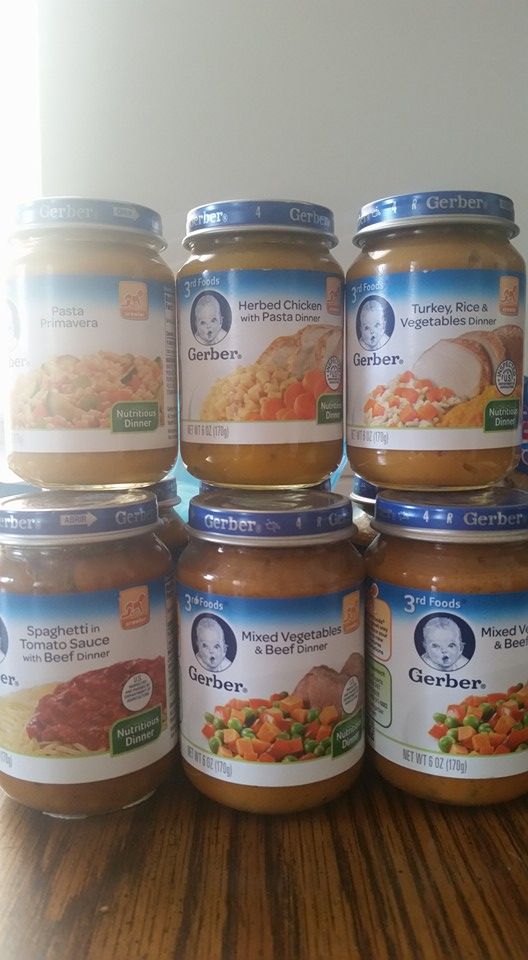 4 ppb (raw materials)
4 ppb (raw materials)
Lead:
- Up to 886.9 ppb (raw materials)
Cadmium:
- Up to 344.55 ppb (raw materials)
Mercury:
- The company doesn’t test for mercury.
In September 2021, the Subcommittee follow-up report released test results of Beech-Nut baby food products that still contained dangerously high inorganic arsenic levels. (6)
Three samples of Beech-Nut Single Grain Rice Cereal had the following inorganic arsenic levels: (6)
- Product code 093470XXXX, sample 1: 122 ppb
- Product code 093470XXXX, sample 2: 116 ppb
- Product code 103470XXXX: 125 ppb
Beech-Nut later issued a recall on these lots and discontinued its rice cereal line. But other products weren’t recalled. (6)(8)
Other Beech-Nut rice cereal product codes that also have results over the FDA’s arsenic limits: (6)
- 013470XXXX
- 013351XXXX
- 243470XXXX
- 113470XXXX
Notably, there were two samples from lot #243470XXXX that showed high levels of inorganic arsenic.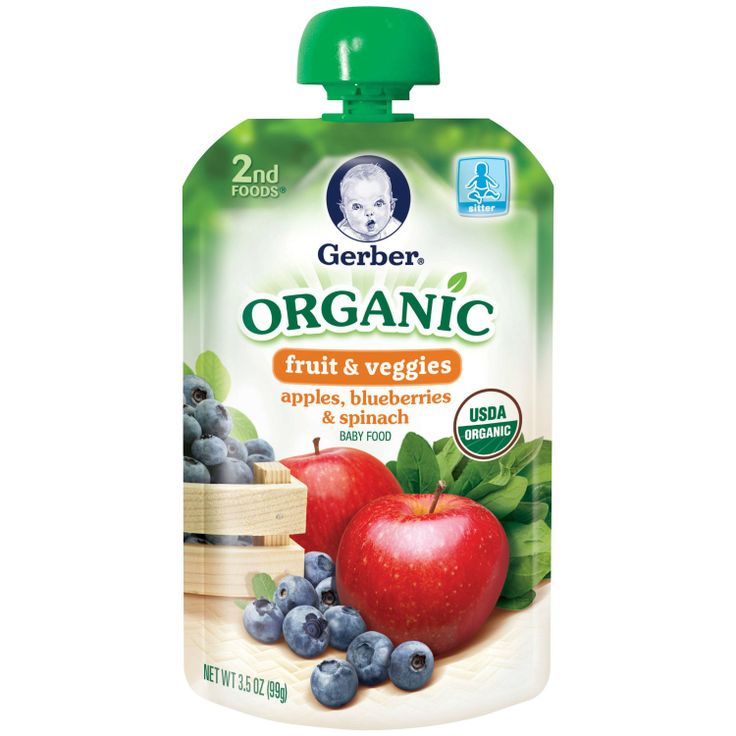 According to the Subcommittee, these results prove that that brand should have issued a recall on the other product codes. (6)
According to the Subcommittee, these results prove that that brand should have issued a recall on the other product codes. (6)
Is Gerber Baby Food Bad?
Congressman Raja Krishnamoorthi, head of the Congressional Subcommittee, issued the following statement regarding Gerber and the other baby food companies: (5)
“My Subcommittee’s investigation has pulled back the curtain on the baby food industry, and each revelation has been more damning than the last.
I’ve released a new report on toxic metals in baby food, including popular brands such as Gerber’s Infant Rice Cereal products containing dangerous levels of inorganic arsenic.
We trust these companies with our babies, and they have failed us.”
Gerber admitted to the Subcommittee that it doesn’t perform heavy metal tests on finished products. Only the raw materials or ingredients are tested. (5)
Here are some of Gerber’s heavy metal test results:
Inorganic Arsenic:
- Up to 90 ppb in rice flour (67 batches)
Lead:
- Up to 48 ppb in sweet potatoes
Cadmium:
- Over 5 ppb in carrot ingredients (75%)
- Up to 87 ppb (some carrot batches)
- No test for other raw materials or ingredients.
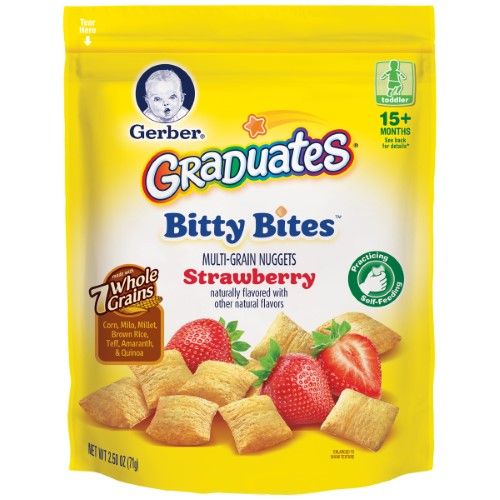
Mercury:
- The company doesn’t test for mercury.
Consumer Reports On Toxic Baby Foods
As many as 90% of US parents choose commercial products over homemade baby foods for children below three years old. So, it’s alarming to learn that many products contain toxic heavy metals. (1)
Consumer Reports showed that 68% of baby foods might have at least one heavy metal in worrisome levels. (1)
Baby Foods That May Have High Levels Of Toxic Metals
The study also identified fifteen baby foods that may pose potential health risks if your child eats several servings a day. (1)
These include foods from Beech-Nut and Gerber: (1)
Beech-Nut
- Complete Rice Single Grain Baby Cereal
- Organic Oatmeal Whole Grain Baby Cereal
- Complete Oatmeal Whole Grain Baby Cereal
- Classics Sweet Potatoes
Gerber
- Graduates Arrowroot Cookies
- Graduates Cinnamon Graham Animal Crackers
- Graduates Banana Cookies
- Graduates Waffle Wheels Puffed Grain Snack, Banana Cream
- Oatmeal Single Grain Cereal
- Organic Oatmeal Cereal
- Graduates Lil’ Biscuits Vanilla Wheat
- Graduates Cereal Bars, Strawberry Banana
- Turkey & Rice
- Carrot, Pear & Blackberry
- Carrots Peas & Corn With Lil’ Bits
- Lil’ Meals flavor White Turkey Stew With Rice and Vegetables
Baby Foods With “Less Concern”
But not all their products have alarming levels of toxic metals. (1)
(1)
The same report identifies the following as baby foods with “less concern.” You may give as many servings as you want to your baby: (1)
Beech-Nut
- Naturals Carrot, Broccoli, Apple & Strawberry
- Classics Apple, Pear & Banana
- Quinoa Crispies, Vanilla
- Organic Just Apple & Green Beans
- Organic Peas, Green Beans, and Avocado
Gerber
- Breakfast Buddies Hot Cereal With Real Fruit, Apple Cinnamon
- Graduates Puffs Cereal Snack, Strawberry Apple
- Grabbers Strong Veggies, Broccoli, Carrot, Banana, Pineapple
- Lil’ Beanies Baked Snack Made With Beans, White Cheddar & Broccoli
- Lil’ Crunchies Baked Corn Snack Mild Cheddar
- Lil’ Crunchies Baked Corn Snack Vanilla Maple
- Lil’ Entrées Chicken & Brown Rice With Peas & Corn
- Organic Puffs, Puffed Grain Snack, Apple
- Organic Peas, Carrots & Beets
What Is The Healthiest Baby Food Brand?
Considering these worrisome toxic metals in Beech-Nut and Gerber products, these may be healthier alternatives to give your baby:
- Little Spoon (subscription-based)
- Yumi (subscription-based)
- Little Journey Organics
- Once Upon A Farm
- Serenity Kids
REFERENCES
(1) https://www.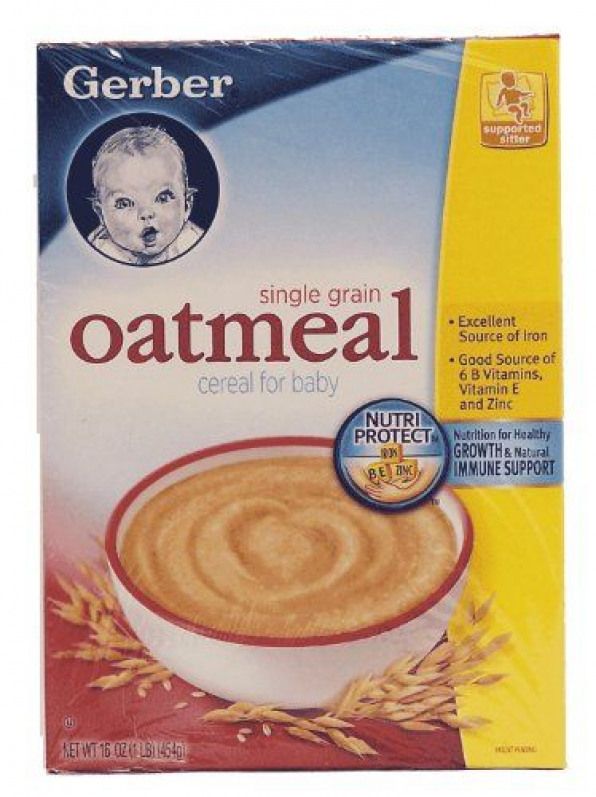 consumerreports.org/food-safety/heavy-metals-in-baby-food/
consumerreports.org/food-safety/heavy-metals-in-baby-food/
(2) https://www.centerforfoodsafety.org/issues/311/ge-foods/ge-food-and-your-health
(3) https://www.mayoclinic.org/healthy-lifestyle/nutrition-and-healthy-eating/expert-answers/bpa/faq-20058331
(4) https://www.healthybabyfood.org/sites/healthybabyfoods.org/files/2019-10/BabyFoodReport_FULLREPORT_ENGLISH_R5b.pdf
(5) https://oversight.house.gov/sites/democrats.oversight.house.gov/files/2021-02-04%20ECP%20Baby%20Food%20Staff%20Report.pdf
(6) https://oversight.house.gov/sites/democrats.oversight.house.gov/files/ECP%20Second%20Baby%20Food%20Report%209.29.21%20FINAL.pdf
(7) https://www.washingtonpost.com/archive/lifestyle/1977/02/10/baby-foods-taking-a-closer-look/6691ea12-e9bc-456e-9c49-3f72b56b5d70/
(8) https://www.fda.gov/safety/recalls-market-withdrawals-safety-alerts/beech-nut-nutrition-company-issues-voluntary-recall-one-lot-beech-nut-single-grain-rice-cereal-and
(9) https://www.fsis.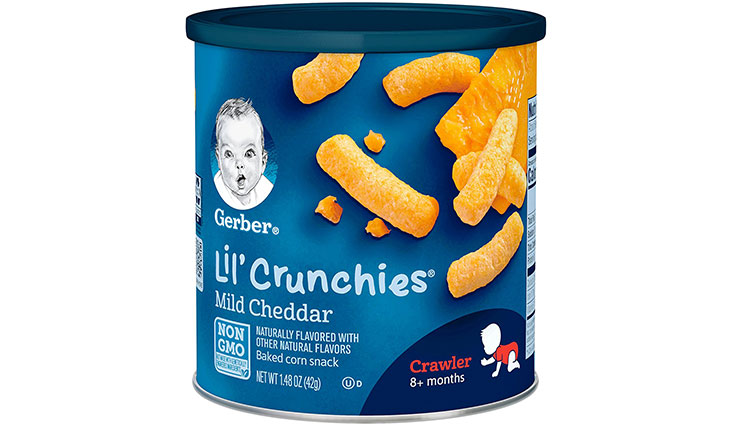 usda.gov/recalls-alerts/beech-nut-nutrition-recalls-baby-food-product-due-possible-foreign-matter
usda.gov/recalls-alerts/beech-nut-nutrition-recalls-baby-food-product-due-possible-foreign-matter
(10) https://www.fda.gov/safety/recalls-market-withdrawals-safety-alerts/gerber-issues-allergy-alert-clarify-egg-labeling-cheese-ravioli-pasta-pick-upsr
(11) http://news.gerber.com/news/gerber-is-voluntarily-recalling-two-batches-of-gerberR-organic-2nd-foodsR-pouches
(12) https://www.fda.gov/food/metals-and-your-food/arsenic-food-and-dietary-supplements
(13) https://www.epa.gov/ground-water-and-drinking-water/national-primary-drinking-water-regulations
Does Baby Food Contain Heavy Metals? Experts Weigh In on Toxic Baby Food Report
- A recently released congressional report that found heavy metals in popular baby foods is causing concern for parents nationwide.
- Major infant food manufacturers like Gerber and Beech-Nut are among the brands that "permit dangerously high levels of toxic heavy metals" in their food, according to the report.

- However, the American Academy of Pediatrics (AAP) says that "low levels of heavy metals found in baby foods likely are a relatively small part of a child's overall heavy metal exposure risk."
- Doctors advise not overreacting to the new report, but instead taking sober, science-backed actions to limit heavy metals and arsenic in your baby's diet.
On February 4, a new congressional report came out claiming that a number of top baby food brands are "tainted with dangerous levels of inorganic arsenic, lead, cadmium and mercury."
Garnering widespread media attention, the report detailed that a subcommittee of congressional investigators requested internal documents and test results analyzing levels of heavy metals found in products from seven of the country's biggest infant food manufacturers, including Nurture (HappyBABY), Beech-Nut, Hain (Earth's Best Organic) and Gerber.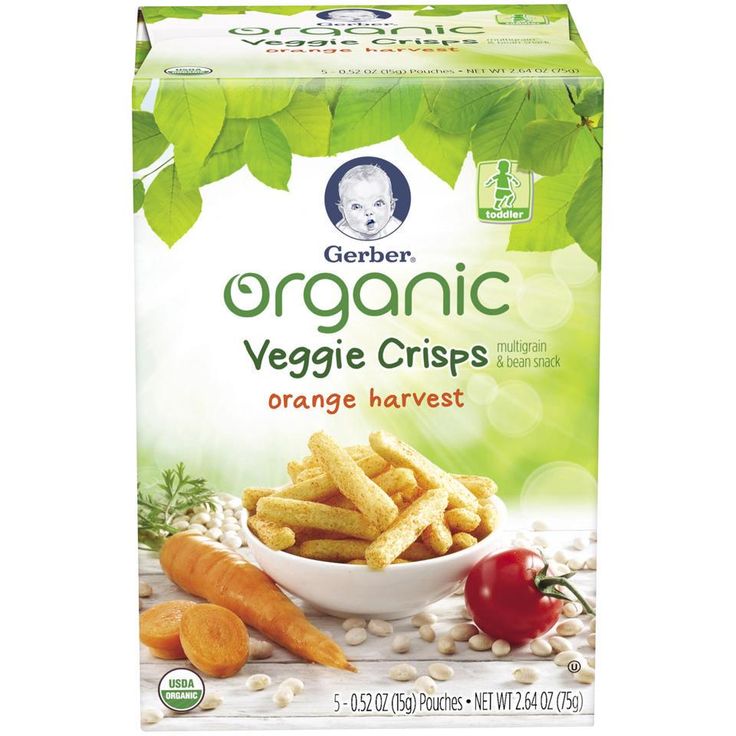 The subcommittee also noted they are "greatly concerned" that Walmart, Sprout Foods and Campbell Soup Company (Plum Organics) did not provide reports or samples for review, despite requests.
The subcommittee also noted they are "greatly concerned" that Walmart, Sprout Foods and Campbell Soup Company (Plum Organics) did not provide reports or samples for review, despite requests.
In the report, congressional investigators claimed that the research showed these top baby food brands have "internal company standards [that] permit dangerously high levels of toxic heavy metals, and documents revealed that the manufacturers have often sold foods that exceeded those levels."
In response to the report, almost all of the brands cited have refuted it in some form or another. Hain released a statement saying, "We are disappointed that the subcommittee report examined outdated data and does not reflect our current practices," also noting the brand met with the U.S. Food and Drug Administration (FDA) last year to discuss how to better refine their standards and practices; Gerber noted they "meet or exceed all existing government requirements," and have "established our own high standards based on the latest food safety guidance.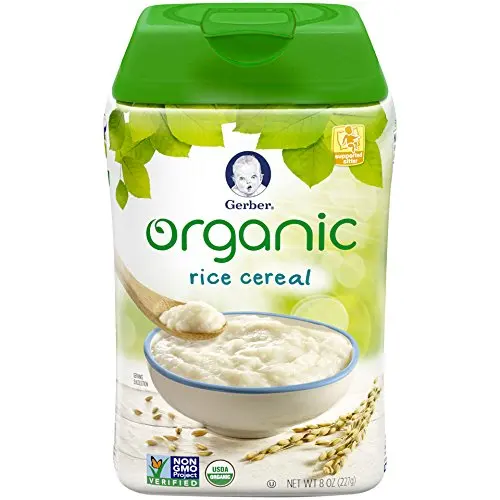 " As for Campbell Soup Company, the brand said in a statement that they responded quickly to the subcommittee’s questions and "never refused anything requested of us," while Walmart says they did submit information to the subcommittee but never received any subsequent inquiries, according to Reuters.
" As for Campbell Soup Company, the brand said in a statement that they responded quickly to the subcommittee’s questions and "never refused anything requested of us," while Walmart says they did submit information to the subcommittee but never received any subsequent inquiries, according to Reuters.
Of course, the report's findings sound alarming to the millions of parents who feed these products to their children. (In 2019 alone, the national baby food market stood at over $6 billion and is projected to grow to $6.7 billion by 2025.) As a concerned mom or dad, what is the next best step for you and your baby? Is homemade baby food the only way to go?
Here's everything you need to know about heavy metals in baby food and how to minimize your child's exposure:
First, what exactly are "heavy metals"?
Heavy metals are naturally occurring elements that are found throughout the earth's crust.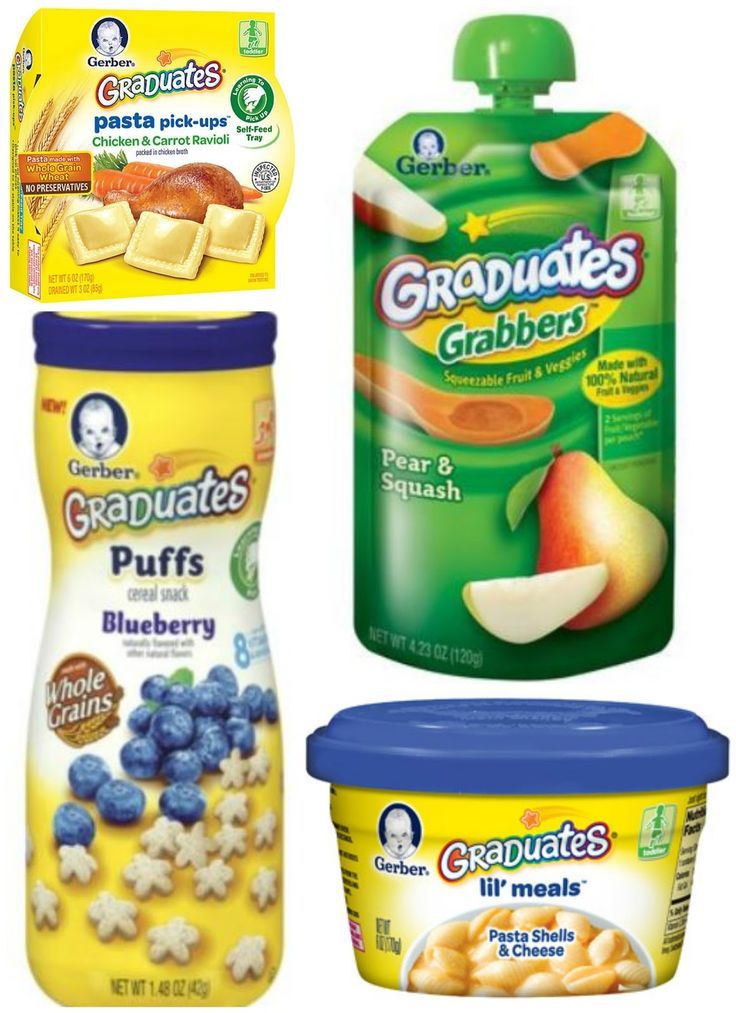 Air, soil and water all contain these metals; they are in the ground we walk on and in the water we drink. Five specific elements — arsenic, cadmium, chromium, lead and mercury — have high degrees of toxicity and rank among the priority metals that are of great public health concern. At high levels, they can be harmful and toxic to the human body. "Heavy metal exposure in infants has the potential to damage the developing brain leading to neuro-developmental effects including lower IQ, cognitive impairments and behavior problems," says Robert Coles, MD, Pediatrician at UC San Diego Health.
Air, soil and water all contain these metals; they are in the ground we walk on and in the water we drink. Five specific elements — arsenic, cadmium, chromium, lead and mercury — have high degrees of toxicity and rank among the priority metals that are of great public health concern. At high levels, they can be harmful and toxic to the human body. "Heavy metal exposure in infants has the potential to damage the developing brain leading to neuro-developmental effects including lower IQ, cognitive impairments and behavior problems," says Robert Coles, MD, Pediatrician at UC San Diego Health.
But some heavy metals, like iron and zinc, are essential for our bodies to function. Metals such as copper, iron, magnesium, selenium and zinc are considered essential nutrients; inadequate intake of these micronutrients can result in deficiency complications and lead to disease. "Zinc is an essential mineral involved in immune function, growth, development, wound healing and cell production.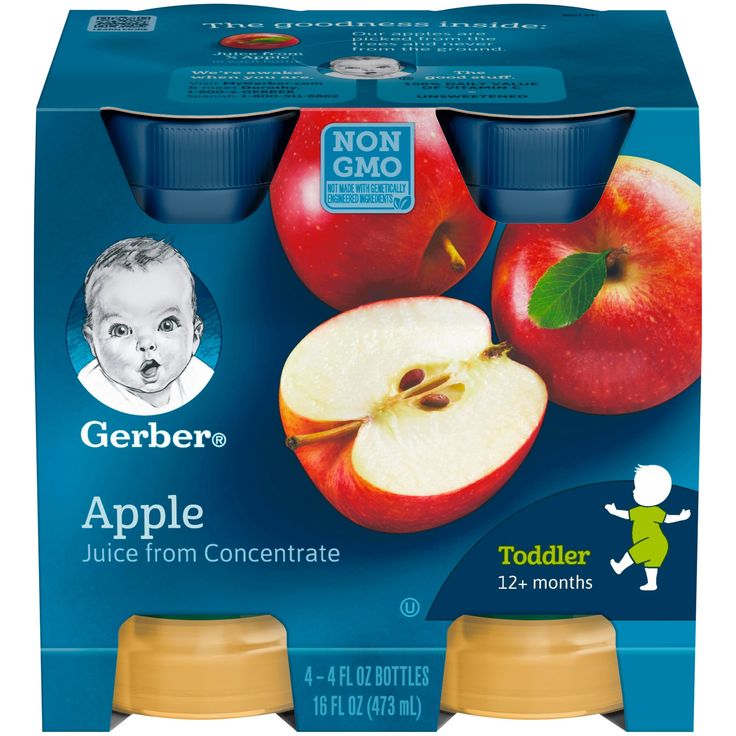 Zinc deficiency can lead to stunted growth in children and adolescents," says Megan Meyer, PhD, Director of Science Communications at the International Food Information Council. She also points out that iron plays an important role in moving oxygen around in the body, a reason why iron is intentionally added to foods like breakfast cereals and infant formulas for enhanced nutrition.
Zinc deficiency can lead to stunted growth in children and adolescents," says Megan Meyer, PhD, Director of Science Communications at the International Food Information Council. She also points out that iron plays an important role in moving oxygen around in the body, a reason why iron is intentionally added to foods like breakfast cereals and infant formulas for enhanced nutrition.
So, how do toxic heavy metals get into baby food?
The recent congressional report may have parents assuming that heavy metals are being added to store-bought baby food brands in toxic amounts, but that's not necessarily the case. When it comes to food production, levels of heavy metals can vary based on several factors, including growing conditions and agricultural processes. "Heavy metals such as lead, arsenic, cadmium and mercury occur naturally in soil, water and air," Dr. Meyer says. "They enter the food supply when plants grow.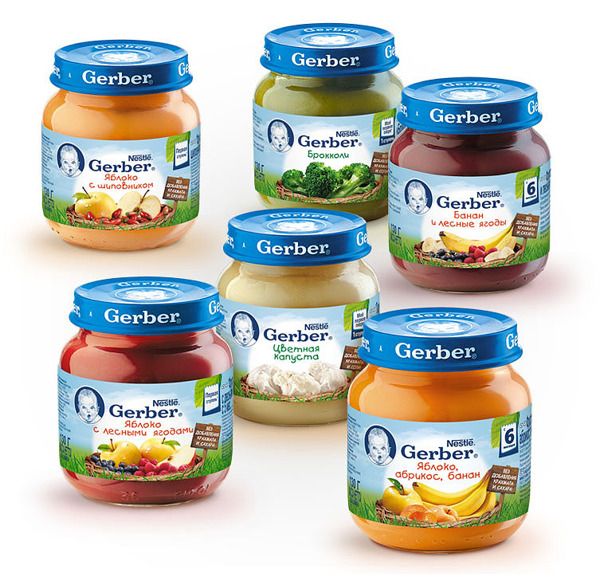 They are naturally occurring, and are not added to food."
They are naturally occurring, and are not added to food."
View full post on Instagram
Although these elements are naturally present in the soil and therefore the food we eat, the report points out that the FDA currently has no set levels for the maximum amount of toxic heavy metals permitted in baby food. While the FDA has issued guidance to finalize the 2016 draft guidance for inorganic arsenic in infant rice cereals, regulations and testing around heavy metals in baby food has yet to be fully established. "I look forward to FDA's careful regulation of these toxic heavy metals in baby foods, followed by strict compliance requirements and mandatory consumer labels," read a statement from Subcommittee Chairman Raja Krishnamoorthi.
Dr. Coles says that recommendations in the congressional report are an excellent place to start, including mandatory testing for heavy metals by baby food manufacturers and establishing FDA standards for maximum levels of toxic heavy metals permitted in baby foods.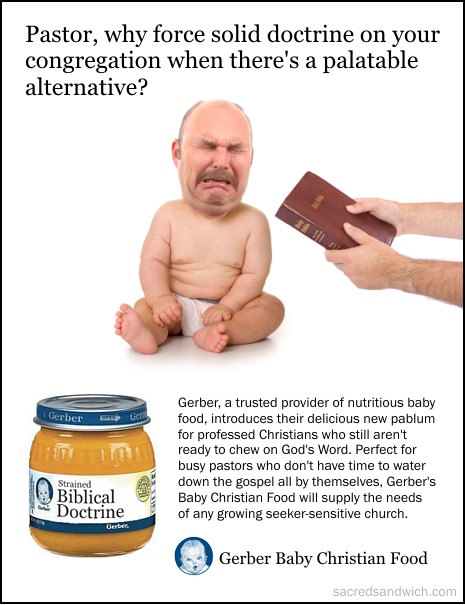
Should I be worried about heavy metals in baby food?
While the new congressional report does illuminate valid concerns about heavy metals in our food supply, the American Academy of Pediatrics (AAP) states that the "low levels of heavy metals found in baby foods likely are a relatively small part of a child's overall heavy metal exposure risk."
"Concerned parents should not panic or overreact to the report," Dr. Coles says. "This issue has been discussed in the past. If parents are providing a varied diet for their children and following the recommendations of the AAP, the risks are low and there is no need to be overly concerned."
Dr. Coles points out that there are many other environmental sources of toxic heavy metals that parents should be more concerned about. For example, the CDC states that the primary sources of lead, a common heavy metal, are homes built before 1978, which are more likely to contain lead paint, and certain water pipes, toys, jewelry and imported candies, which all have the potential to pose a greater risk.
"In order to reduce the risk that children will be exposed to heavy metals from any and all sources, the AAP recommends that parents address lead hazards in the home, check water for heavy metals, avoid smoking or vaping which may expose children to cadmium and lead, breastfeed if possible, make healthy fish choices as some can be high in methylmercury, serve a variety of foods, and switch up grains — particularly avoiding rice," says Dr. Coles.
As a new mom, Dr. Meyer adds that the issue strikes close to home for her. "I think what’s most important for people to realize is that baby food is not a significant source of heavy metal exposure," she says. "Instead, I hope that parents will prioritize feeding their children a diverse diet that includes a variety of fruits and veggies, whole grains, healthy fats and protein."
Is organic or homemade baby food a better bet than conventional?
Parents might assume that purchasing organic baby food might avoid the issue altogether, but Dr.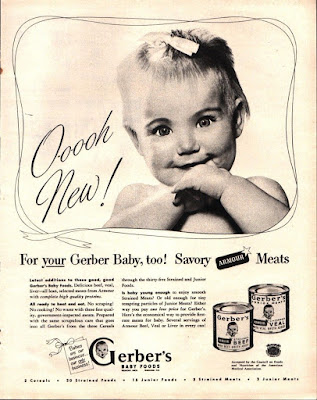 Meyer says that this may not be the case. "According to the AAP, since heavy metals are found in the soil, both organic and conventional baby food contain similar levels of heavy metals," she explains.
Meyer says that this may not be the case. "According to the AAP, since heavy metals are found in the soil, both organic and conventional baby food contain similar levels of heavy metals," she explains.
As for making baby food at home, the AAP states that this can provide a bit more control since you're choosing the ingredients and might also be avoiding potential contaminants from processing or packaging. But again, since produce comes from the earth, trace levels of heavy metals may still be present.
Image Source//Getty Images
How to limit heavy metals in your baby's diet
The AAP shares that the most important thing for parents to do is to offer a variety of foods to your baby, since completely avoiding heavy metals in any food is nearly impossible since they are naturally present in the earth. But there are a few evidence-based actions you can take to limit heavy metals in your baby's diet:
- Vary the types of foods being offered.
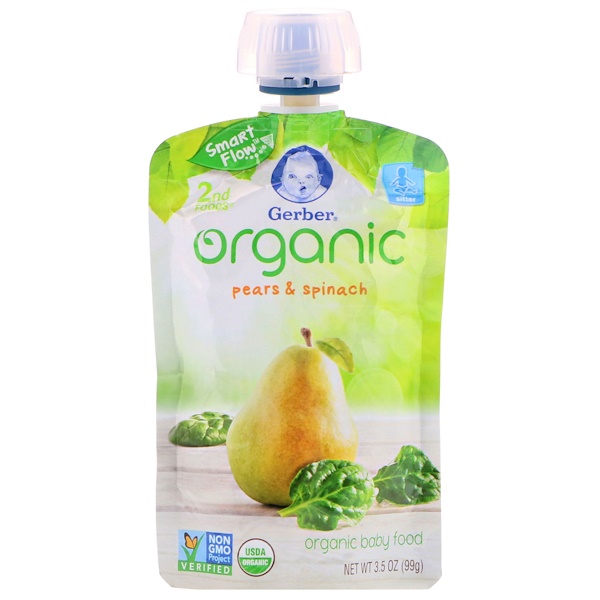 The best — and most practical — piece of advice for parents is to vary the types of food being offered to your baby, in order to provide a variety of nutrients and decrease the amount of arsenic in your child's diet.
The best — and most practical — piece of advice for parents is to vary the types of food being offered to your baby, in order to provide a variety of nutrients and decrease the amount of arsenic in your child's diet. - Limit fruit juices. The AAP has long recommended limiting intake of all sweet beverages, including juice, to reduce the risk of obesity and dental carries in children. Not only does fruit juice have a high sugar content and no fiber, but a 2019 report found levels of arsenic and lead in many popular fruit juice brands. Grape juice and juice blends had the highest average heavy metal levels as per this report. Limit fruit juices to no more than 4 oz per day and avoid them until at least 1 year of age. Instead, try breastmilk or infant formula for babies, and water or milk for older children.
- Limit rice and rice-based products. Arsenic, one of the heavy metals of concern, is naturally present in rice.
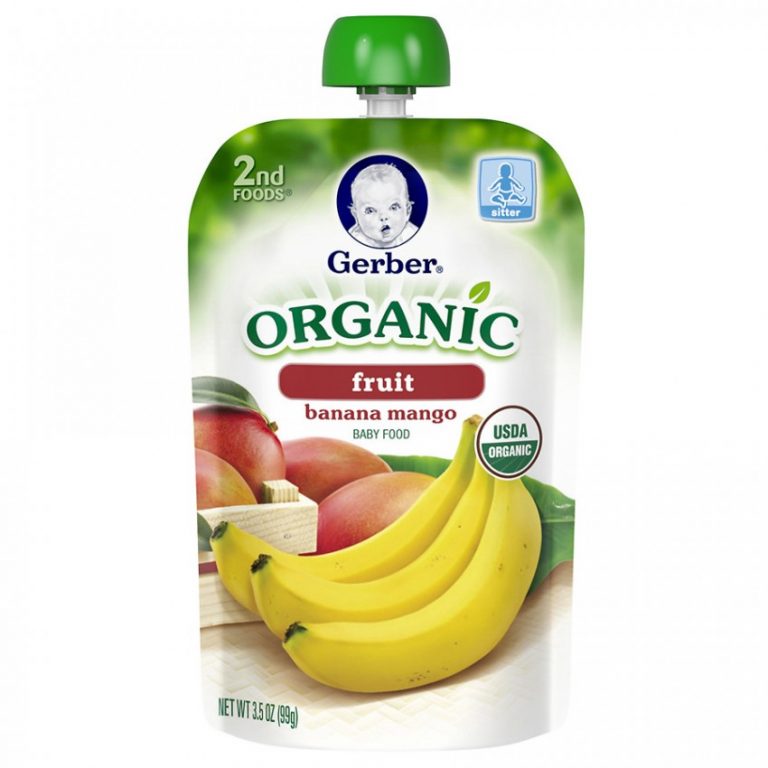 Several baby food items and snacks, like rice cereal, puffs and many teething crackers, contain rice as the leading ingredient. Try to limit or avoid these rice-based products in your baby's diet, and offer infant cereals like oat, barley or multigrain options instead.
Several baby food items and snacks, like rice cereal, puffs and many teething crackers, contain rice as the leading ingredient. Try to limit or avoid these rice-based products in your baby's diet, and offer infant cereals like oat, barley or multigrain options instead. - Try parboiling rice. That said, rice is an important culinary component of many cultures. If it's a staple in your home, a cooking technique known as parboiling with absorption (PBA) method may remove a significant portion of arsenic from both brown and white rice. This method essentially involves pre-boiling the rice before draining and refreshing the water.
- Include a variety of grains in your baby's diet. Buckwheat, millet, amaranth, farro, barley, quinoa, oats and bulgar are great options to incorporate into your baby's diet and eating routine.
Stefani Sassos, M.S., R.D.N., C.S.O., C.D.N., NASM-CPT
Nutrition Lab Deputy Director
Stefani (she/her) is a registered dietitian, a NASM-certified personal trainer and the deputy director of the Good Housekeeping Institute Nutrition Lab, where she handles all nutrition-related content, testing and evaluation.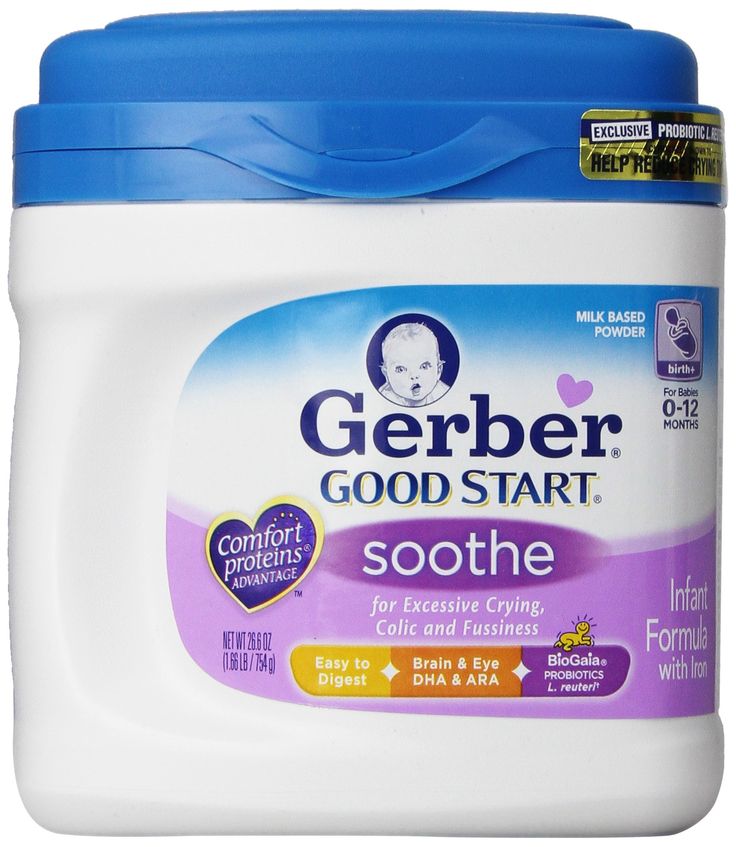 She holds a bachelor’s degree in nutritional sciences from Pennsylvania State University and a master’s degree in clinical nutrition from NYU. She is also Good Housekeeping’s on-staff fitness and exercise expert. Stefani is dedicated to providing readers with evidence-based content to encourage informed food choices and healthy living. She is an avid CrossFitter and a passionate home cook who loves spending time with her big fit Greek family.
She holds a bachelor’s degree in nutritional sciences from Pennsylvania State University and a master’s degree in clinical nutrition from NYU. She is also Good Housekeeping’s on-staff fitness and exercise expert. Stefani is dedicated to providing readers with evidence-based content to encourage informed food choices and healthy living. She is an avid CrossFitter and a passionate home cook who loves spending time with her big fit Greek family.
This content is imported from OpenWeb. You may be able to find the same content in another format, or you may be able to find more information, at their web site.
Is it possible for adults to eat baby food: benefits and harms
- Photo
- Natalia Kurzova / Adobe Stock
Now we will talk about the benefits and harms of products made specifically for children. These include fruit and vegetable purees, juices and nectars, yoghurts and curds, cereals and various snacks for the little ones.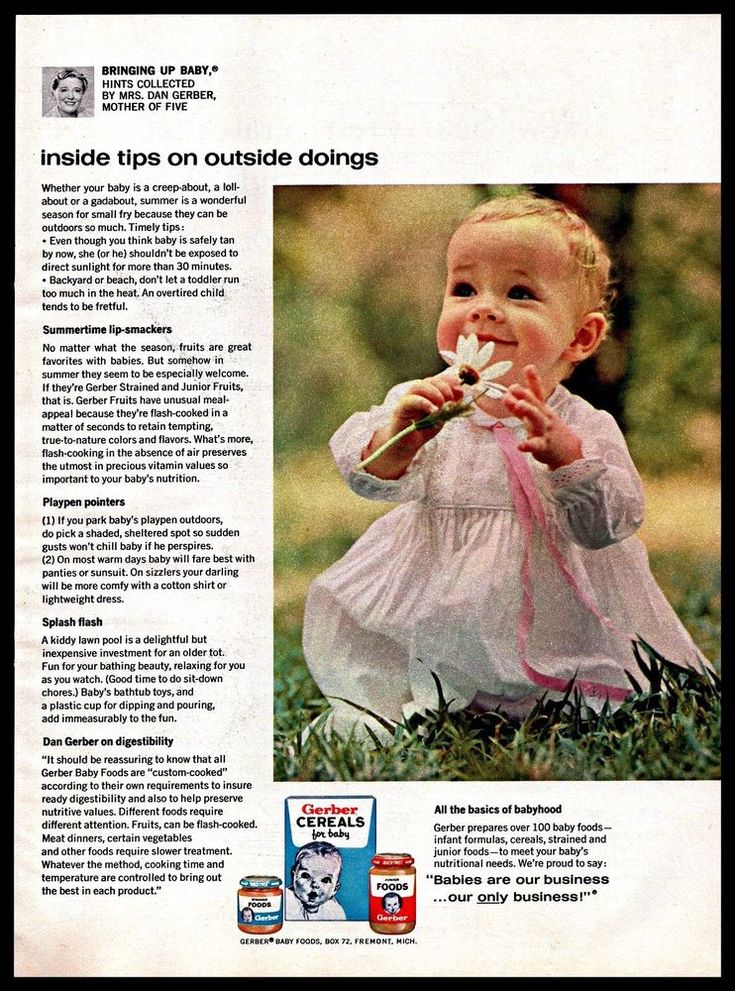
Pluses of baby food
No harmful ingredients
It is clear that baby food is made specifically for babies. Therefore, they do not add harmful additives, dyes, flavors, a lot of sugar and salt. Not a single ingredient in the composition should cause an allergy or any disorder in a baby - which means that such food is safe for an adult. Moreover, manufacturers are strictly looked after - all children's products undergo a thorough check, and only then they get on the shelves in stores. nine0013
Tasty and convenient
Children's curds, cereals and purees with a sweet fruity taste can easily replace high-calorie cakes and other "adult" desserts. Some may also like cookies in cute little packages.
Speaking of packaging. Kids are not physically able to eat a lot, so for them everything is laid out in small portions. And these jars and packaging are very convenient to take with you for a walk, to school or university.
Low Calorie
Children's fruit and vegetable purees, and in such tiny portions, are very, very few calories! Some stars even specifically switch to only baby food in order to lose weight.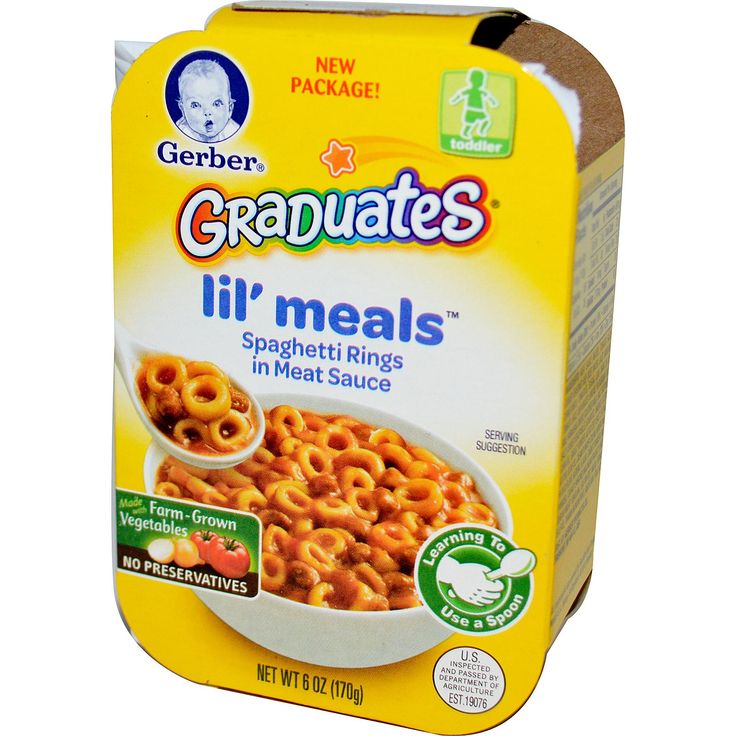 So, for example, did Jennifer Aniston and Reese Witherspoon.
So, for example, did Jennifer Aniston and Reese Witherspoon.
Ready to follow suit? Well, slow down. Now let's talk about why you shouldn't do this.
Disadvantages of baby food
Few essential nutrients
Yes, these tasty purees contain only useful things and nothing harmful. But do not forget that this is still baby food. That is, it is made specifically for babies - taking into account the peculiarities of digestion of young children. And the body of an adult, you know, is very different. An adult needs a lot more fiber and dietary fiber - otherwise problems with the intestines will begin. nine0013
Sometimes it's not so tasty
Taste is both a plus and a minus of baby food. Sweet foods really look like a delicious dessert, but mashed vegetables and meat? We are used to cooking with all sorts of spices, which will definitely not be in the composition of dishes from a jar. In general, "adult" and "children's" food is very different in taste.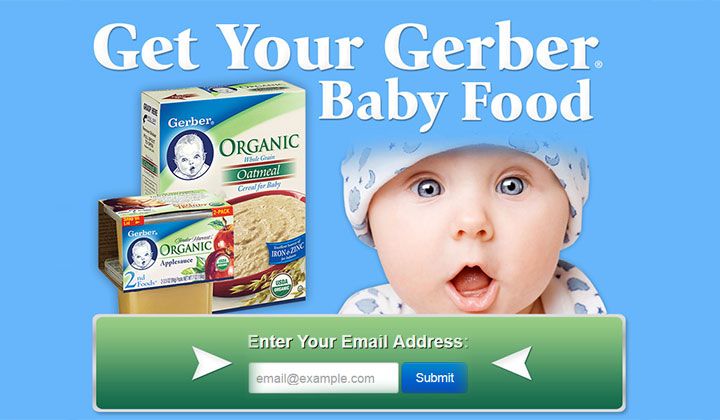 You can, of course, get used to eating baby food all the time ... But why?
You can, of course, get used to eating baby food all the time ... But why?
Is it useful or not?
There is nothing wrong with snacking on baby food occasionally. It can be quite healthy, tasty and without extra calories. But you definitely can’t replace all breakfasts, lunches and dinners with them - in this way you will deprive yourself of important components and harm your health. nine0013
Ekaterina Migacheva, Elena Bugai
Tags
- food
- healthy food
Nestle Gerber | Baby food
The history of baby purees, cereals and snacks in the Gerber® catalog begins at Nestlé Research Centers, where our scientists, nutritionists and technologists work on the composition of complementary foods for babies from 6 months old. Our farmers, with whom we have been cooperating for many years, grow fruits, vegetables and cereals for us in accordance with the most stringent requirements for baby food.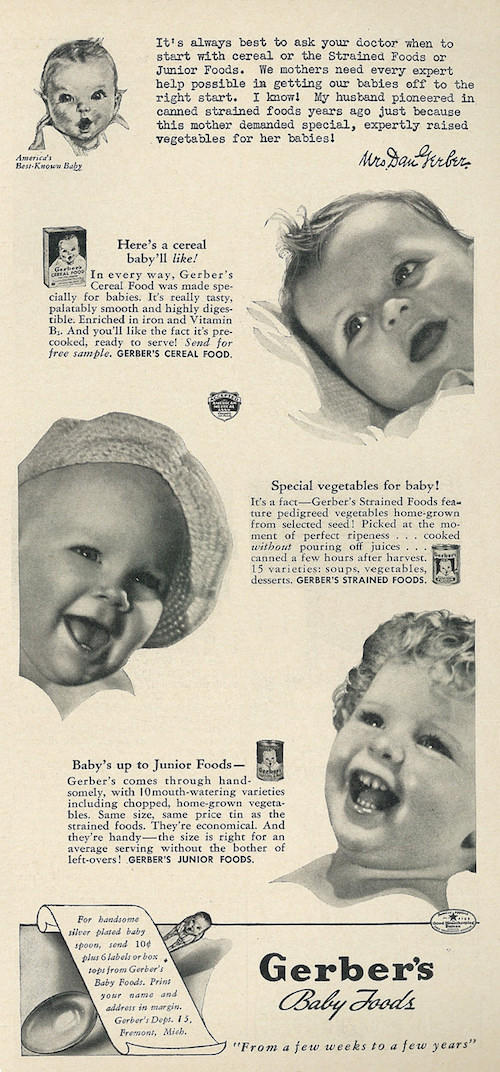 Employees of our factories carefully process raw materials and control all aspects of production from the moment of acceptance until the finished dishes are in jars. This is how our big team works, helping moms and dads for more than 9 years.0 years old
Employees of our factories carefully process raw materials and control all aspects of production from the moment of acceptance until the finished dishes are in jars. This is how our big team works, helping moms and dads for more than 9 years.0 years old
Why do moms trust Gerber
® ?Natural
The future taste preferences of the crumbs are laid in the first year of life. That is why it is so important that the baby receives products from natural ingredients. Healthy eating in childhood is the key to good eating habits in the future.
Baby food "Nestlé" Gerber ® does not contain genetically modified ingredients, preservatives, artificial colors, flavor and aroma enhancers. Rest assured, if a jar says “zucchini only”, it really only contains zucchini – and nothing else! That is why Gerber® one-component purees are the best way to introduce the first complementary foods into the baby's diet. nine0013
We prepare Nestlé Gerber® baby food according to the “Natural and healthy” principle, preserving the taste and nutritional value of the products.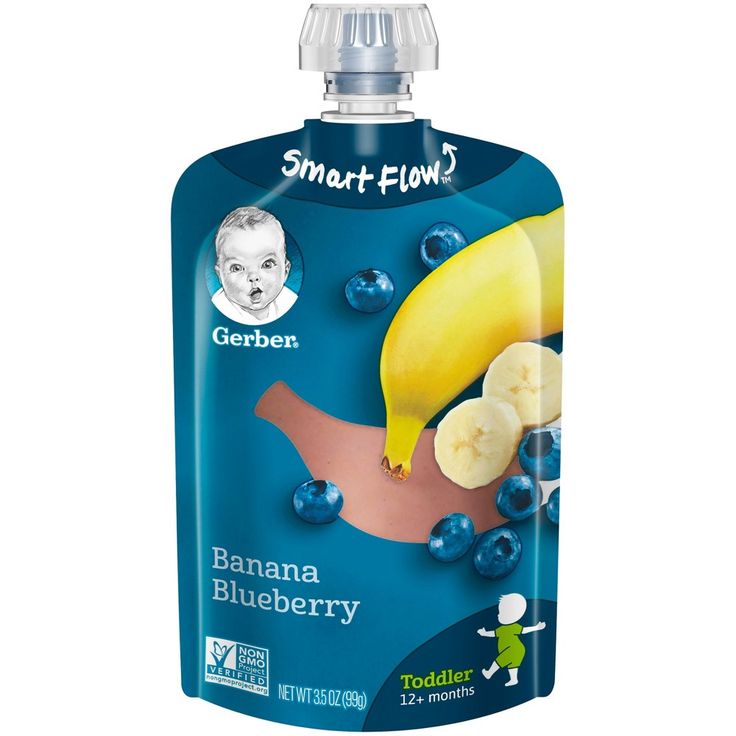
Quality
We select our Gerber® baby food responsibly. We are working with many of them already in the third generation.
We check not only the quality of vegetables and fruits supplied, but also the quality of the soil on which they are grown. It is very important for us that all fields and orchards are located away from busy highways, big cities and industrial zones. We attach great importance to this, since the purity and indicators of the soil directly affect the quality of the products. nine0013
Approximately 120 tests on over 500 parameters are used to assess the quality and safety of Gerber® baby food fruits and vegetables.
Our packaging meets the same high standards as its contents. On each jar, we put down the batch number and production time - using this information, we can always trace where the crop was grown from which this puree was prepared.
Each Gerber® cap is fitted with a special lug to indicate the seal. When the lid is opened for the first time, a characteristic click is heard - this is a guarantee of the quality and freshness of the product. nine0013
nine0013
You can get acquainted with the range of Gerber® products on our official website.
Expertise
We've been developing and manufacturing Gerber® baby food for over 90 years*.
We strictly control the quality at all stages of production - from the field to the jar.
A range of vegetable flavors in 1-ingredient purees for the first meal of the day allows your baby to get more vegetables in the first year of life, which forms a habit for later life. According to research, 57% of children aged 6 years and older regularly eat the vegetables they are accustomed to from early childhood**. nine0013
* A trial batch of Gerber® products was produced in 1927.
** A. Mayer-Noth, B. Schaal, P. Litwood in the article “The continued impact of dietary diversity in early life. Long-term study of vegetable intake in two populations of children aged 5 months to 6 years.
Little Gourmet's Menu
Weaning Starts
Gerber ® One-Ingred Vegetable Purees are great for first foods and baby food.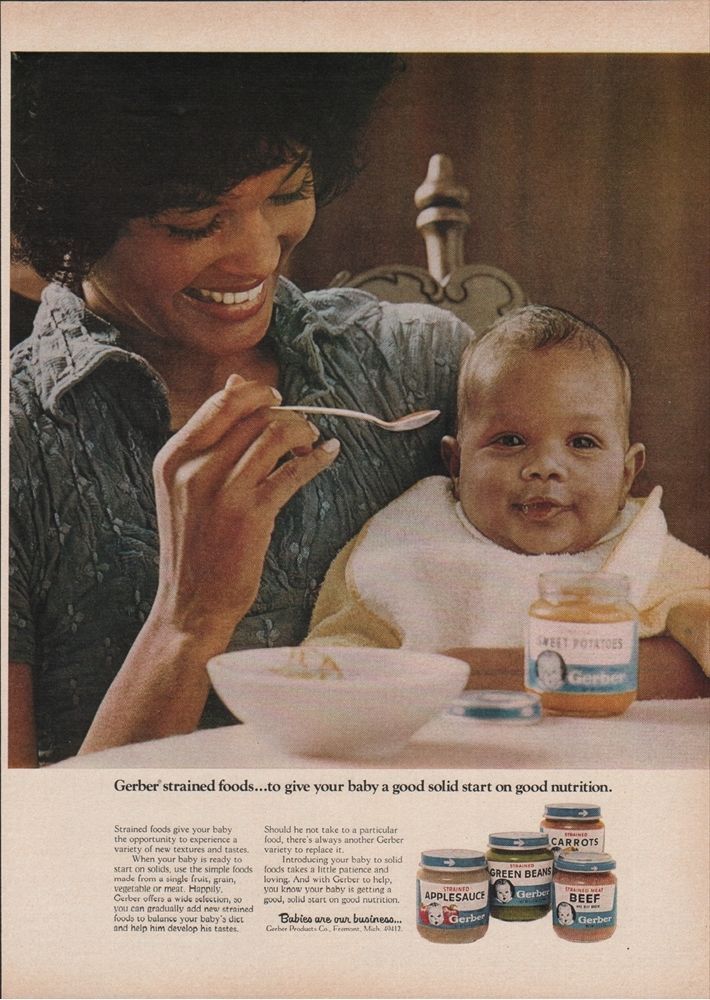 The composition of the product includes only the vegetable that is indicated on the package - and there are no extraneous additives. nine0013
The composition of the product includes only the vegetable that is indicated on the package - and there are no extraneous additives. nine0013
Gerber ® Fruit Single Ingredient Baby Purees and Juices should be administered after vegetables. They introduce the baby to new tastes and are an addition to the main meal, but not its replacement.
Products
6-12 months
Product
Vegetable Puree Gerber® Pumpkin
A useful find to start vegetable complementary foods. Scientists have found that the more diverse vegetable tastes a baby recognizes, the more favorably he accepts new ones. nine0013
Learn more
6-12 months
Product
Vegetable Puree Gerber® Zucchini
An excellent choice when it comes to the very first vegetable food.
Learn more
6-12 months
Product
Vegetable Puree Gerber Carrot
Gerber® vegetable purees are ideal for your baby's first taste of a variety of flavors. After all, the first sensations of a new taste form the habit of proper nutrition from early childhood. nine0013
Learn more
6-12 months
Product
Vegetable Puree Gerber Cauliflower
Gerber® vegetable purees are ideal for your baby's first taste of a variety of flavors. After all, the first sensations of a new taste form the habit of proper nutrition from early childhood.
Learn more
6-12 months
Product
Vegetable Puree Gerber Broccoli nine0017
Gerber® vegetable purees are ideal for your baby's first taste of a variety of flavors.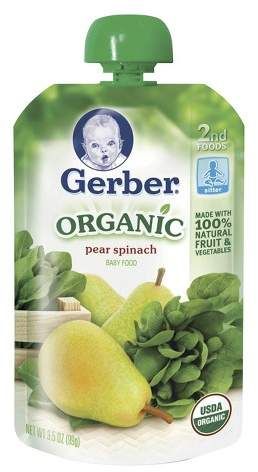 After all, the first sensations of a new taste form the habit of proper nutrition from early childhood.
After all, the first sensations of a new taste form the habit of proper nutrition from early childhood.
Learn more
6-12 months
Product
Fruit puree Gerber Apple
Gerber® fruit purees are ideal for your baby's first taste of a variety of flavors. After all, the first sensations of a new taste form the habits of proper nutrition from early childhood. nine0013
Learn more
6-12 months
Product
Fruit puree Gerber pear Williams
Gerber® fruit purees are ideal for your baby's first taste of a variety of flavors. After all, the first sensations of a new taste form the habits of proper nutrition from early childhood.
Learn more
6-12 months
Product
Fruit puree Gerber Prunes nine0017
Gerber® fruit purees are ideal for baby's first introduction to a variety of flavors. After all, the first sensations of a new taste form the habits of proper nutrition from early childhood.
After all, the first sensations of a new taste form the habits of proper nutrition from early childhood.
Learn more
Expanding the diet
Gerber ® multi-ingredient vegetable and fruit baby purees allow you to diversify your baby's diet after getting to know the basic tastes. His digestive system is already ready to accept more complex textures and tastes. nine0013
It is recommended to add foods that contain meat to the baby's diet after the introduction of vegetable purees and cereals, but before fruit purees and juices. Meat puree can be added to vegetable puree already familiar to the child. For the first feeding, it is also better to choose one-component purees: veal, turkey, rabbit.
Products
6-12 months
Product
Gerber® Vegetable Puree Vegetable Mix nine0017
Tender texture helps you learn to swallow thicker foods, while Gerber®'s special mashing process keeps all the goodness of natural vegetables in every jar.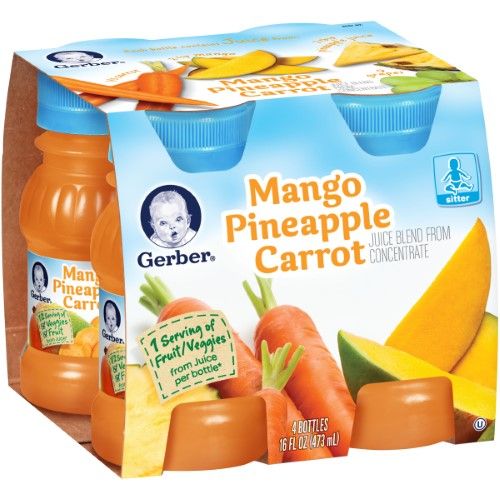
Learn more
6-12 months
Product
Fruit puree Gerber Apple, apricot, banana
Learn more
6-12 months
Product
Fruit puree Gerber Apple with wild berries nine0017
Gerber® fruit purees are ideal for baby's first introduction to a variety of flavors. After all, the first sensations of a new taste form the habits of proper nutrition from early childhood.
Learn more
6-12 months
Product
Fruit puree Gerber Apple and peach
Learn more
6-12 months
Product
Fruit puree Gerber Apple, prunes nine0017
Gerber® fruit puree is ideal for the first acquaintance of the little one with roses and savory.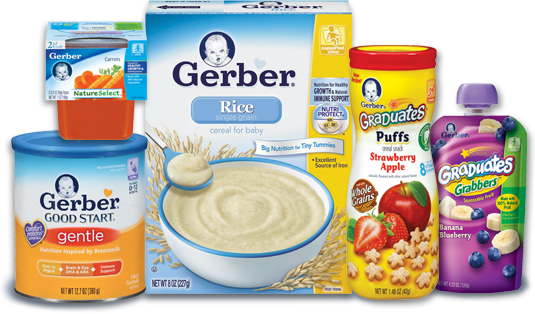 Aja pershi vіdchutta new relish form the star to the right eating from early childhood.
Aja pershi vіdchutta new relish form the star to the right eating from early childhood.
Learn more
6-12 months
Product
Fruit puree Gerber Apple, pumpkin
Gerber® fruit purees are ideal for your baby's first taste of a variety of flavors. After all, the first sensations of a new taste form the habits of proper nutrition from early childhood. nine0013
Learn more
6-12 months
Product
Fruit puree Gerber Apple and pear
Gerber® fruit purees are ideal for your baby's first taste of a variety of flavors. After all, the first sensations of a new taste form the habits of proper nutrition from early childhood.
Learn more
6-12 months
Product
Meat puree Gerber Tender chicken nine0017
Including Gerber® meat purees in your baby's menu, you not only help him grow and develop properly, but also prevent the possibility of developing anemia.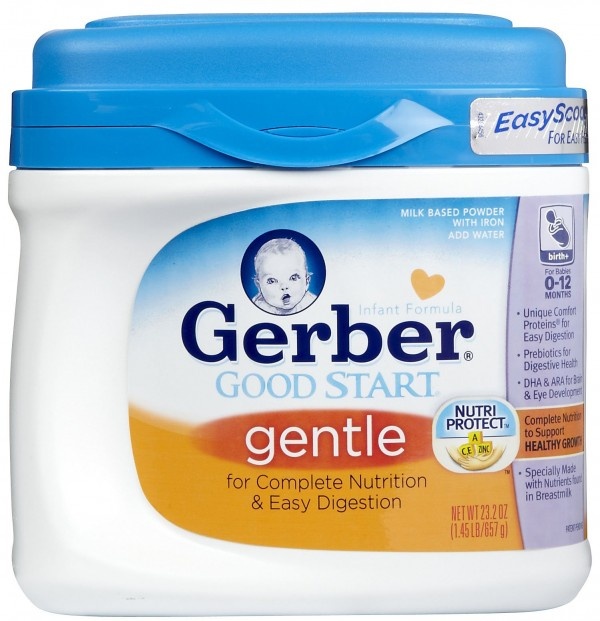
Learn more
6-12 months
Product
Gerber® Meat Puree Tender Turkey
Learn more
6-12 months
Product
Puree Gerber Tender vegetables with veal nine0017
Gerber® Meat and Vegetable Puree "Tender Vegetables with Veal" is a complete meal that provides your baby with the necessary energy and forms the habit of proper nutrition from early childhood.
Learn more
6-12 months
Product
Puree Gerber Tender vegetables with rabbit
Gerber® Meat & Vegetable Purees are great for exploring new flavors.
Learn more
6-12 months nine0013
Product
Gerber Puree Cauliflower and Potatoes
Gerber® purees are made only from natural products without added starch, sugar, salt or colorants.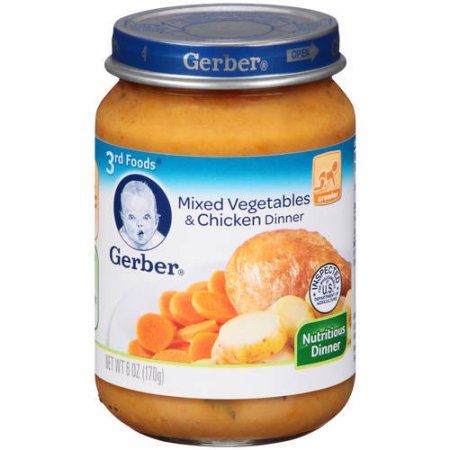 That is why they open the baby the natural taste of vegetables and fruits.
That is why they open the baby the natural taste of vegetables and fruits.
Learn more
6-12 months
Product
Puree Gerber Ragout Homemade Beef with Carrots
Gerber® Puree is great for expanding your diet and developing both your baby's taste and chewing skills as you transition to an adult menu. nine0013
Learn more
6-12 months
Product
Puree GERBER "Delicacy in Italian"
Gerber Italian Delicacy Puree is great for expanding the diet and developing both baby's taste perception and chewing skills during the gradual transition to an adult menu.
Learn more
12-18 months
Product
Puree Gerber Ragout with turkey and rice nine0017
Gerber® Turkey Stew with Rice is a complete, balanced meal for your little one.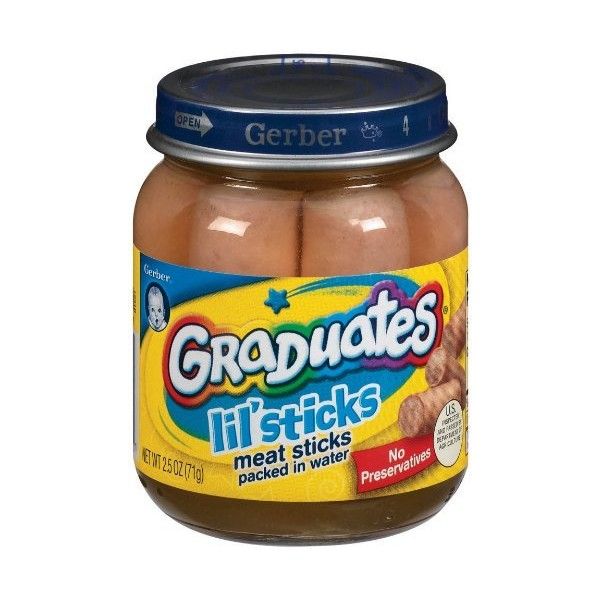
Learn more
We eat on our own
As a rule, by the year a child has 6 to 8 teeth, and he wants to use them actively - he learns to gnaw and chew.
To improve these skills, you can offer your little one a light and healthy snack in a handy package - Gerber® pouches. They are easy and convenient to take for a walk, travel or visit.
More about pouches
For babies from 1 year old, we have created a healthy and tasty snack between meals - Gerber® fruit and cereal bars.
We do not add sugar and starch to the bars, because it is important for us that the child feels the natural taste of the ingredients.
More about bars
Products
6-12 months
Product nine0013
Gerber® Fruit Puree Apple Peach
Gerber® apple and peach fruit puree in a large and convenient package - 100% natural fruit! Soft packaging "pouch" is easy to take for a walk, travel or visit.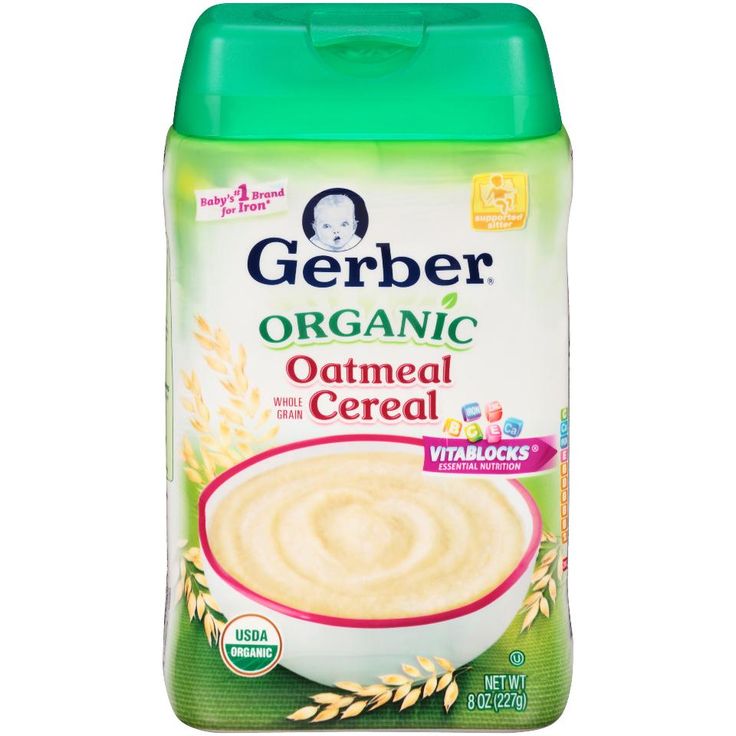
Learn more
6-12 months
Product
Gerber® Fruit Puree Apple Apricot
Gerber® fruit purees with apples and apricots in a large and convenient package - 100% natural fruit! Soft packaging "pouch" is easy to take for a walk, travel or visit. nine0013
Learn more
6-12 months
Product
Fruit Puree Gerber® Apple Wild Berries
Gerber® fruit puree with apples and wild berries in a large and convenient package - it's 100% natural fruit! Soft packaging "pouch" is easy to take for a walk, travel or visit.
Learn more
12-18 months
Product
Grapes and apple nine0017
Gerber® Grape & Apple Fruit & Grain Bar is a healthy treat in a convenient format for children over 1 year old.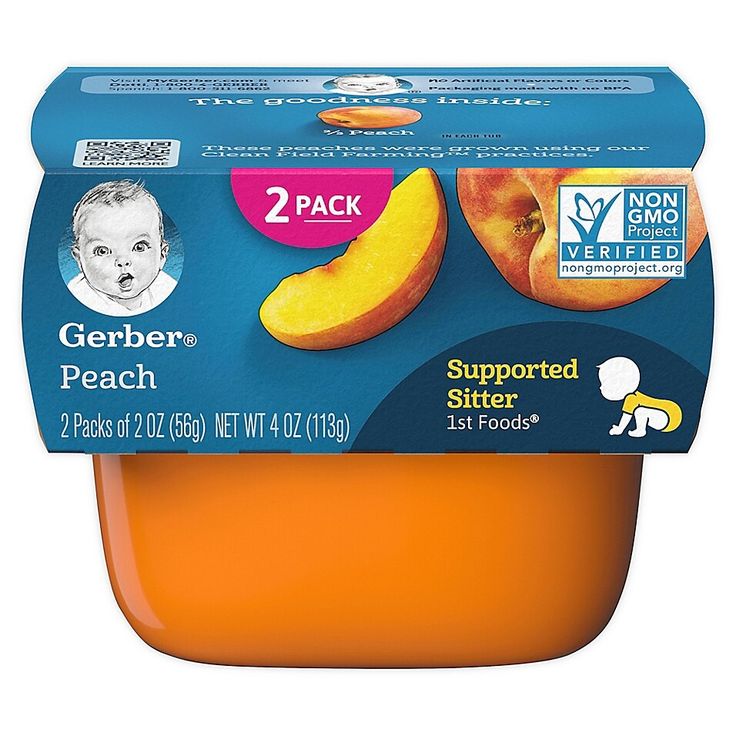
Learn more
12-18 months
Product
Blueberries and black currants
Gerber® Blueberry & Blackcurrant Fruit & Cereal Bar is a healthy treat in a convenient format for children over 1 year old.
Learn more
12-18 months
Product
banana and apple
Gerber® Banana & Apple Fruit & Grain Bar is a healthy treat in a convenient format for kids over 1 year old.
Learn more
6-12 months
Product
Fruit puree Gerber Apple, pear, raspberry, blueberry (pouch)
Gerber® fruit puree in a convenient soft pack is 100% natural fruit + vitamin C! The new soft pouch is easy to take for a walk, a trip or a visit. nine0013
Learn more
6-12 months
Product
Fruit puree Gerber Apple and mango (pouch)
Gerber® fruit puree in a convenient soft pack is 100% natural fruit + vitamin C! The new soft pouch is easy to take for a walk, a trip or a visit.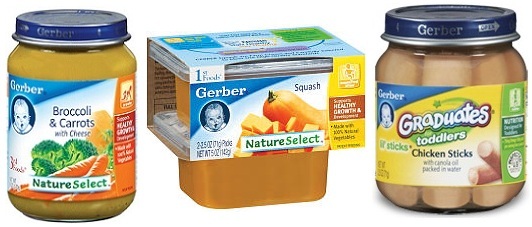
Learn more
6-12 months
Product
Fruit puree Gerber Apple and peach (pouch) nine0017
Gerber® fruit puree in a convenient soft pack is 100% natural fruit + vitamin C! The new soft pouch is easy to take for a walk, a trip or a visit.
Learn more
6-12 months
Product
Fruit puree Gerber Apple and pear (pouch)
Gerber® fruit puree in a convenient soft pack is 100% natural fruit + vitamin C! The new soft pouch is easy to take for a walk, a trip or a visit. nine0013
Learn more
6-12 months
Product
Fruit puree Gerber Apple, plum, carrot (pouch)
Gerber® fruit puree in a convenient soft pack is 100% natural fruit + vitamin C! The new soft pouch is easy to take for a walk, a trip or a visit.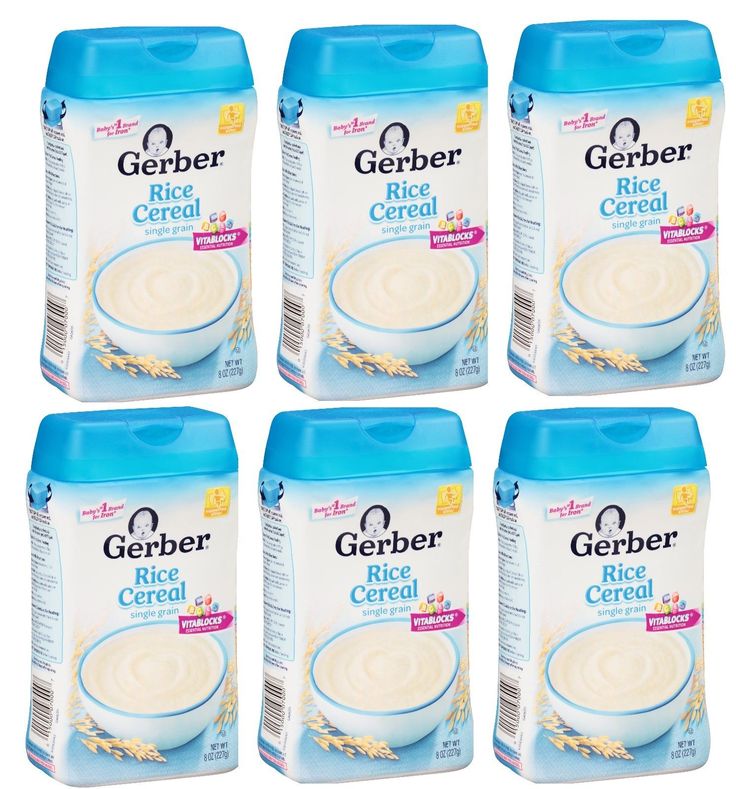
Learn more
6-12 months
Product
Fruit puree Gerber Apple, blueberry, banana (pouch) nine0017
Gerber® fruit puree in a convenient soft pack is 100% natural fruit + vitamin C! The new soft pouch is easy to take for a walk, a trip or a visit.
Learn more
6-12 months
Product
Gerber fruit puree Apple, pumpkin and apricot (pouch)
Gerber® fruit and vegetable puree in a convenient soft pack is 100% natural fruits and vegetables + vitamin C! The new soft pouch is easy to take for a walk, a trip or a visit. nine0013
Learn more
6-12 months
Product
Fruit puree Gerber Pear and prunes (pouch)
Gerber® fruit puree in a convenient soft pack is 100% natural fruit + vitamin C! The new soft pouch is easy to take for a walk, a trip or a visit.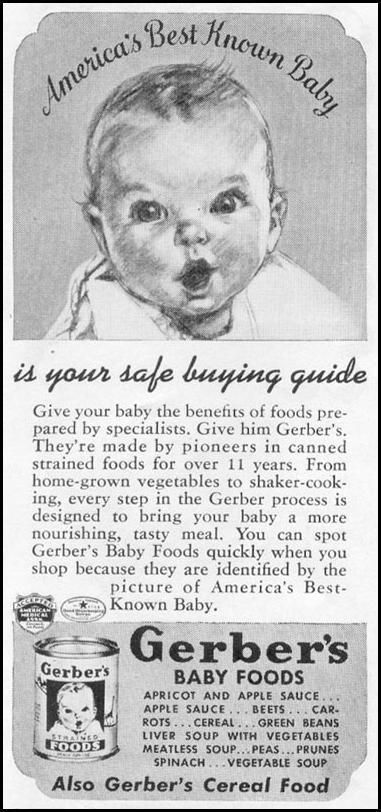
Learn more
6-12 months
Product
Puree Gerber Fruit cocktail with cereals (pouch) nine0017
Learn more
Cereals
Gerber® knows that the start of weaning is a special occasion for you and your baby. You want your little one to experience only the very best. And so are we! That's why Gerber® is a simple, clean formula and nothing more. Gerber® Dry Cereals help introduce your baby to gluten. We also add iron to Gerber® cereals, an element that contributes to normal cognitive function of the brain.
More about Kashi
Products nine0015
6-12 months
Product
Gerber® Milk Oat-Wheat Porridge with Banana and Mango
Gerber® Banana Mango Oatmeal Wheat Powdered Milk Porridge helps introduce your baby to gluten.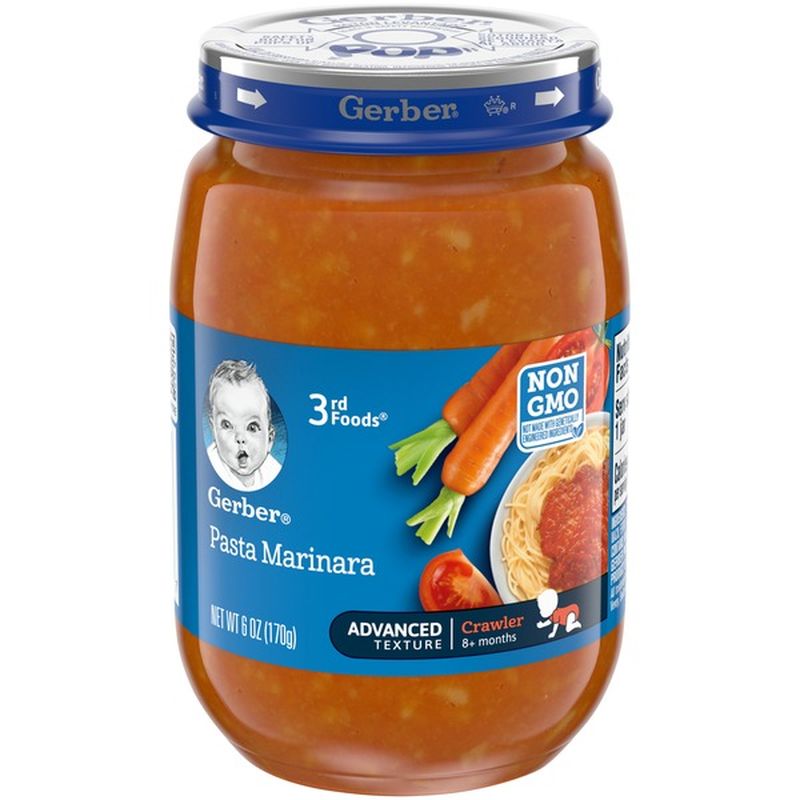
Learn more
6-12 months
Product
Gerber® Dairy-Free Oatmeal with Wheat
Gerber® Dairy-Free Oatmeal Powder with Wheat helps introduce your baby to gluten. nine0013
Learn more
6-12 months
Product
Gerber® Dairy-Free Multi-Grain Cereal
Gerber® Dairy-Free Multi-Grain Cereal helps introduce your baby to gluten.
Learn more
6-12 months
Product
Dairy multi-cereal porridge Gerber®
Gerber® Milk Powdered Multigrain Cereal helps introduce your baby to gluten. nine0013
Learn more
6-12 months
Product
Gerber® milk multigrain porridge with yogurt, banana and pear
Gerber® Milk Powdered Multi-Grain Cereal with Yogurt, Banana and Pear helps introduce your baby to gluten.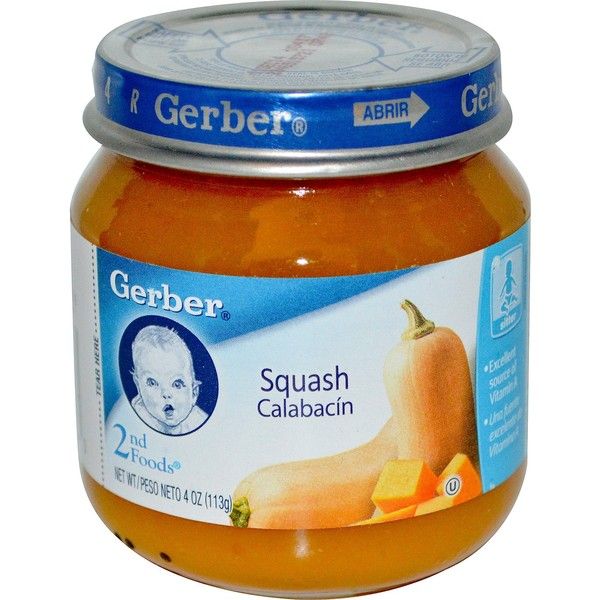
Learn more
Share moments
Follow our Instagram0013
Subscribe
Snacks Gerber® Organic
Gerber® Organic Snacks are a healthy snack and a great addition to your baby's daily diet.
To learn more
Gerber® Fruit & Cereal Bars
Gerber® Fruit & Cereal Bars will diversify your baby's diet and add flavor and health benefits.
To learn more
Gerber® fruit purees nine0017
Gerber® fruit purees will help introduce your baby to a variety of new flavors. The first sensations of a new taste form the habit of proper nutrition from early childhood.
To learn more
Gerber® vegetable purees
Gerber® vegetable purees are great for your baby's first meal and help build healthy eating habits. The first sensations of a new taste form the habit of proper nutrition from early childhood.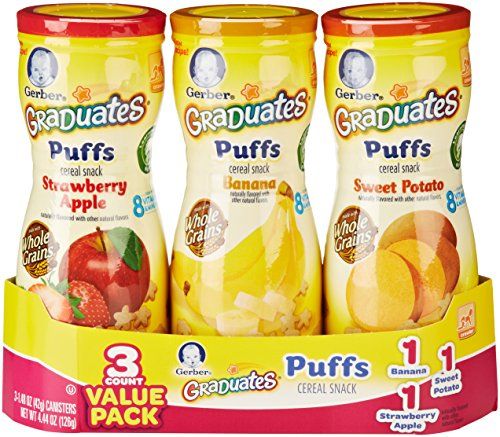 nine0013
nine0013
To learn more
Gerber® vegetable and meat purees
Gerber® Meat & Vegetable Purees are great for exploring new flavors.
To learn more
Gerber® Meat Purees
Gerber® Meat Purees will add variety to your baby's diet and help avoid iron deficiency.
To learn more
History of the Gerber brand nine0017
90 years ago, none of the Gerber family could have imagined that with the light hand of a caring mother and wife, Dorothy Gerber, her husband's small cannery in the US state of Michigan would become famous throughout the world. Today, GERBER® baby food is known to all parents!
To learn more
The World Health Organization (WHO) recommends exclusive breastfeeding for the first 6 months of life. Nestlé supports this recommendation.


